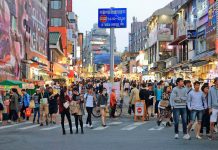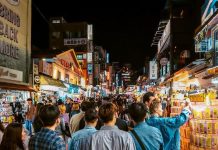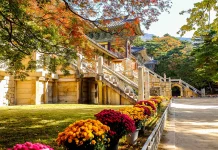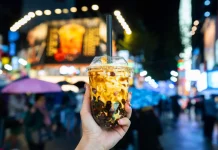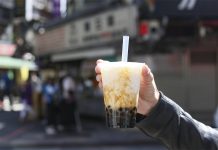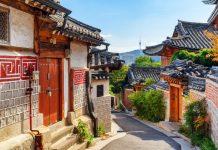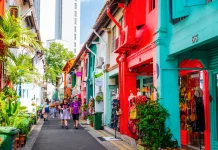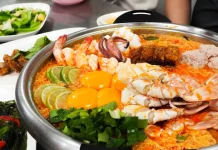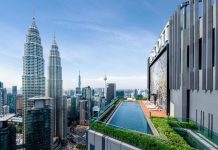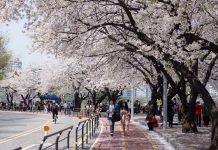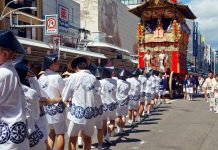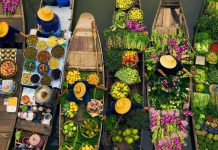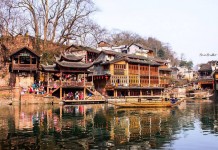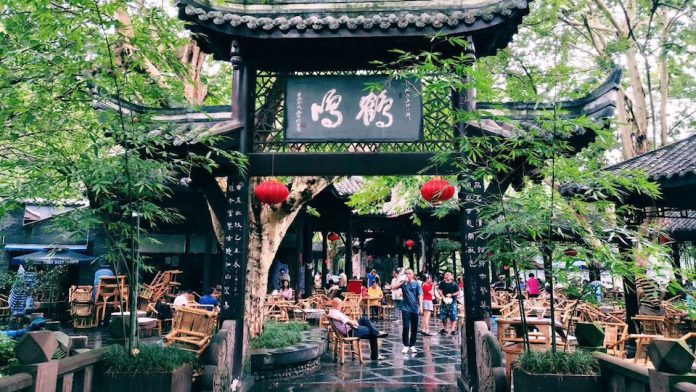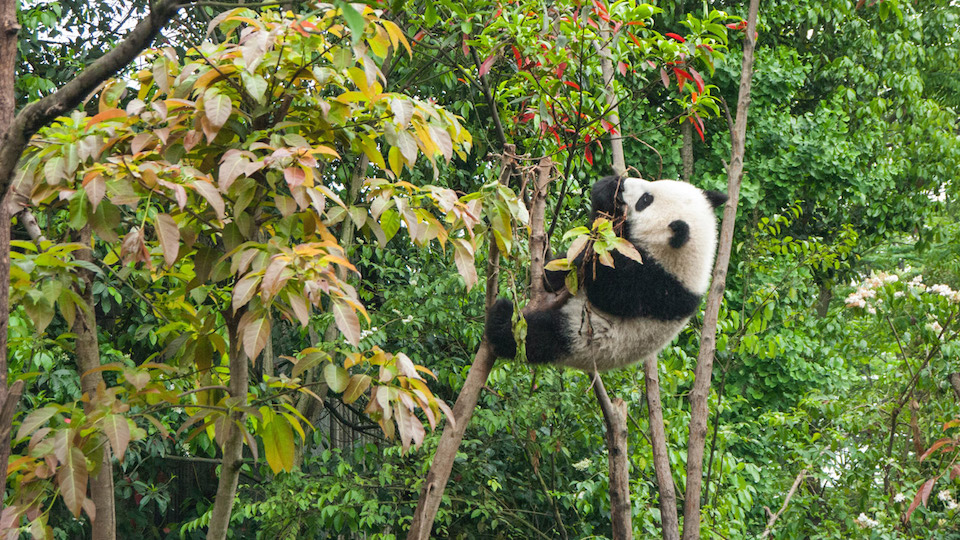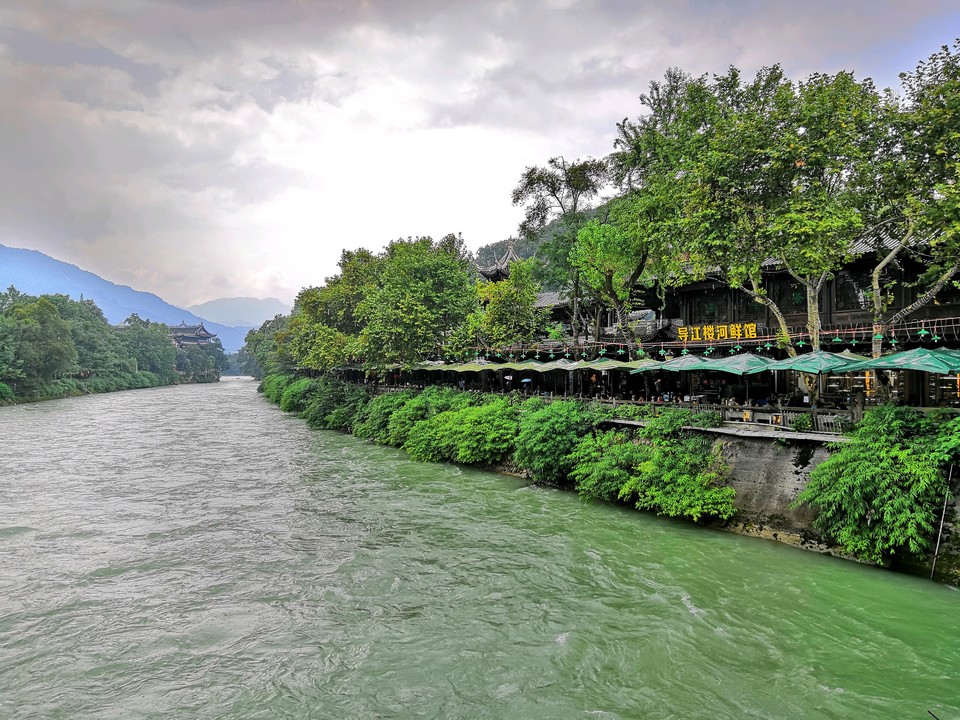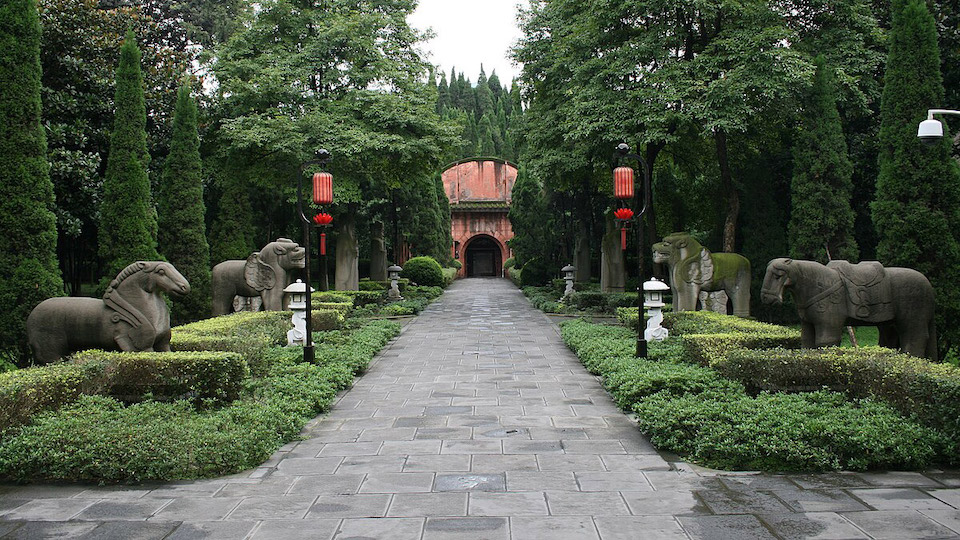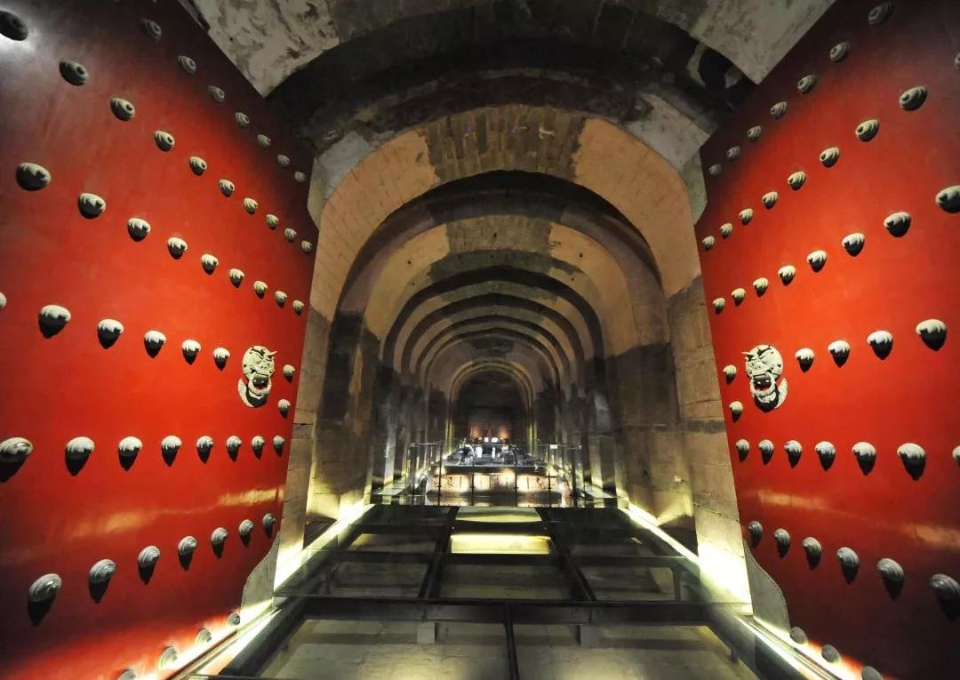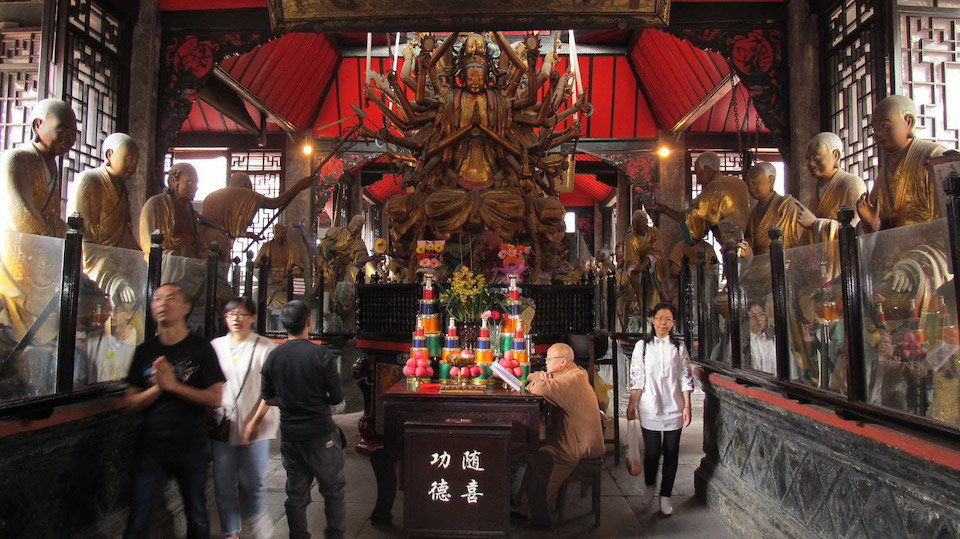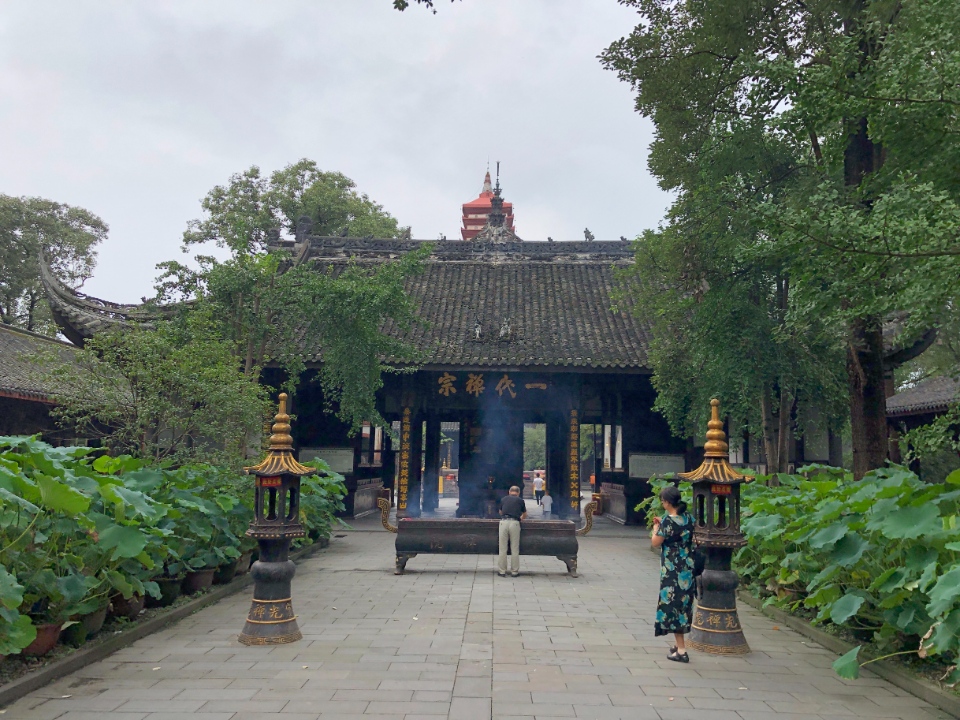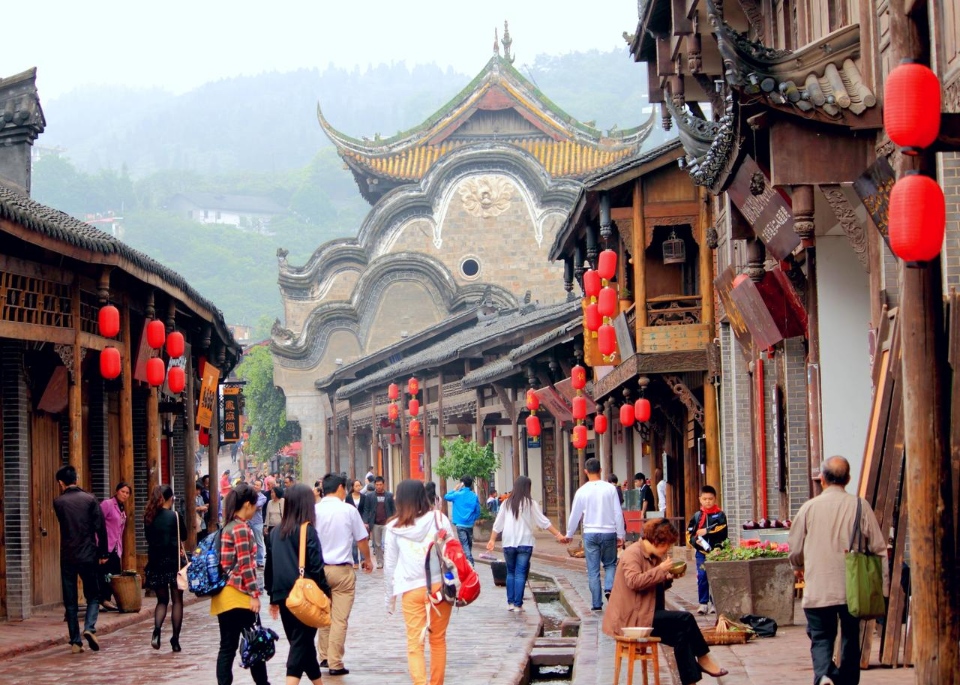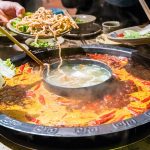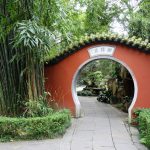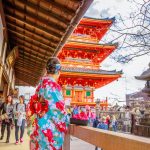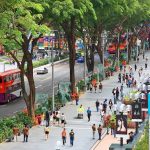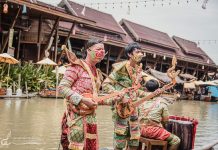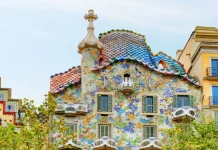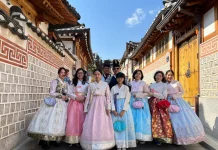Chengdu is one of China’s historic cities as well as the hometown of giant pandas. It has a long history of 2,300 years and is known as the “rich land”. Today, Chengdu has become a tourist city with a rich culture. So, what to do in chengdu and what to see in Chengdu? Let’s check out our top rated 26+ must do in Chengdu, top things to do in Chengdu and best things to do in Chengdu as follows!
- What to eat in Chengdu? — 19+ must-try, famous food & best Chengdu street food to eat
- Chengdu travel blog — The fullest Chengdu travel guide for first-timers
- What to buy in Guangzhou? — 11+ best things to buy in Guangzhou & best shopping places in Guangzhou
- Where & what to buy in Nanjing? — 7+ must-buy Nanjing souvenirs & best things to buy in Nanjing
- Guide to Shenzhen nightlife — Top 5 things & what to do in Shenzhen at night
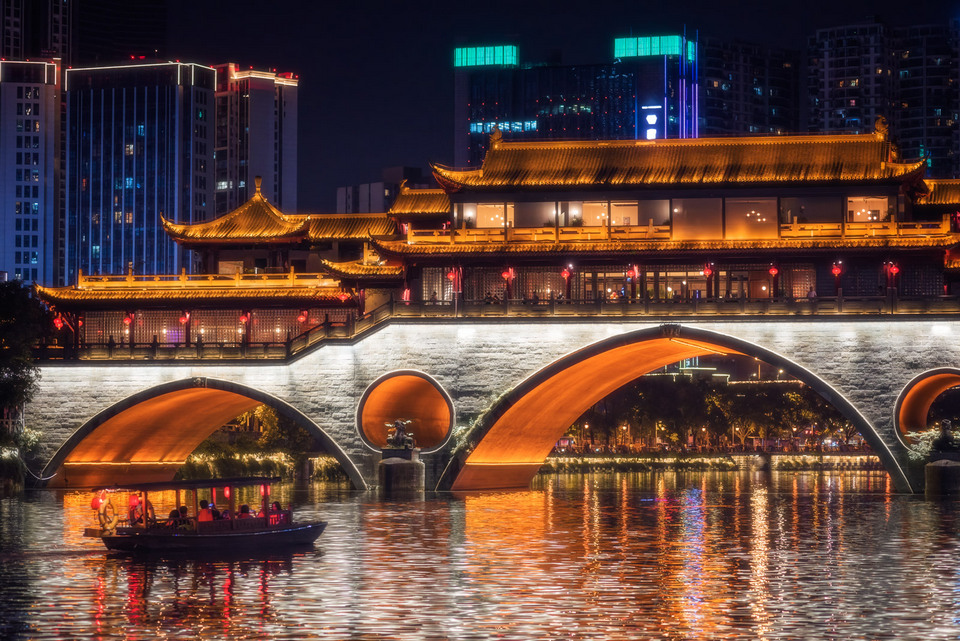
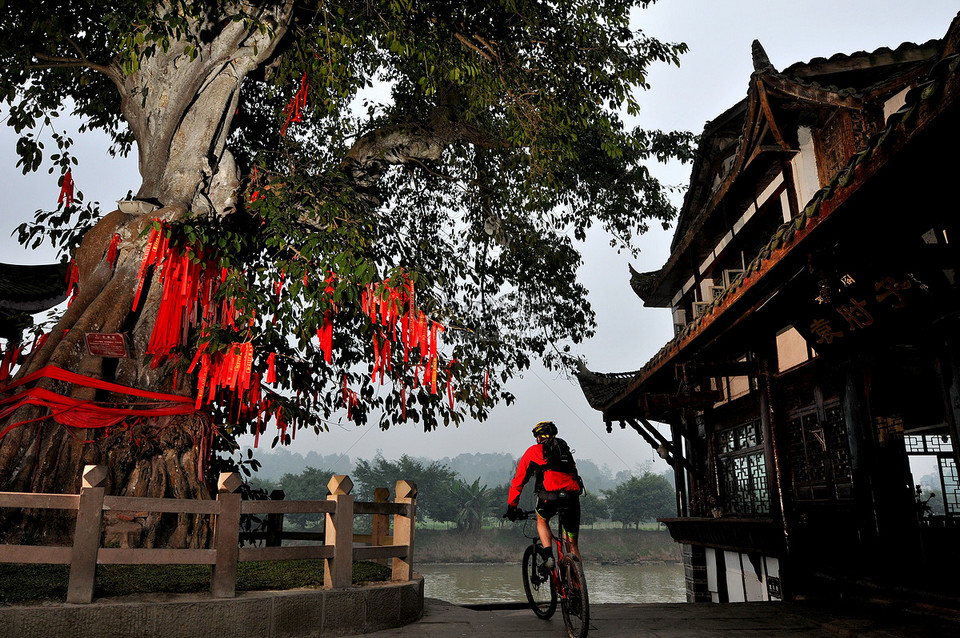
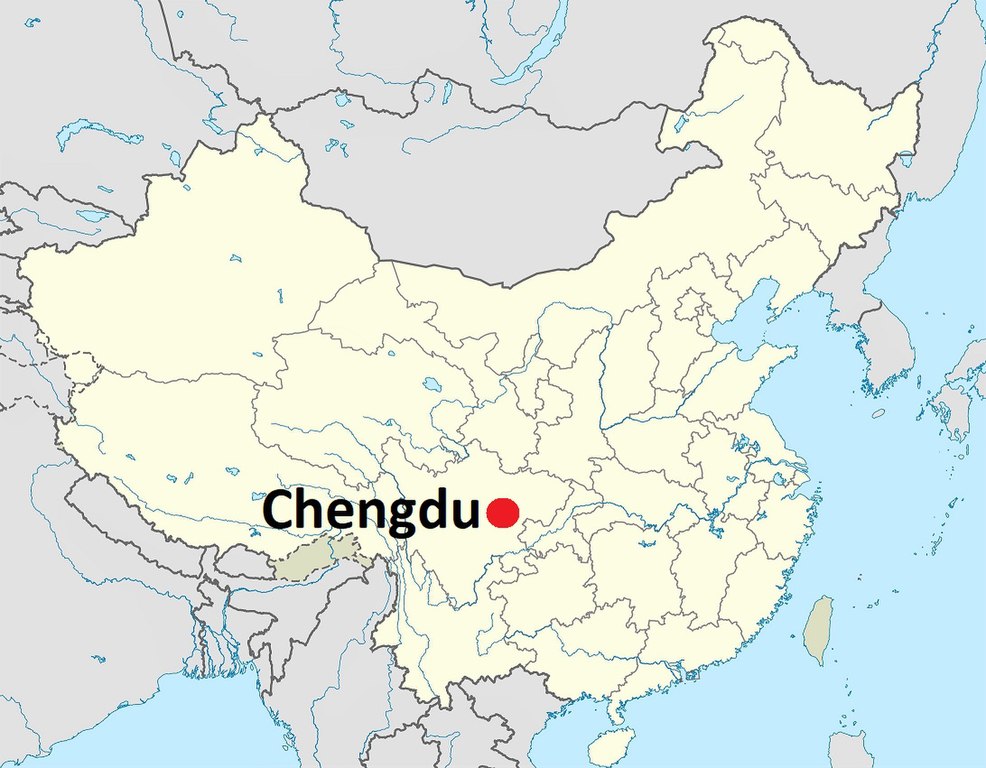
Enjoy Sichuan Cuisine: A culinary adventure (# what to do in chengdu)
A visit to Chengdu would not be complete without sampling the famous Sichuan cuisine. From spicy hot pot to delicious Mapo tofu, the city’s cuisine is an explosion of flavors.
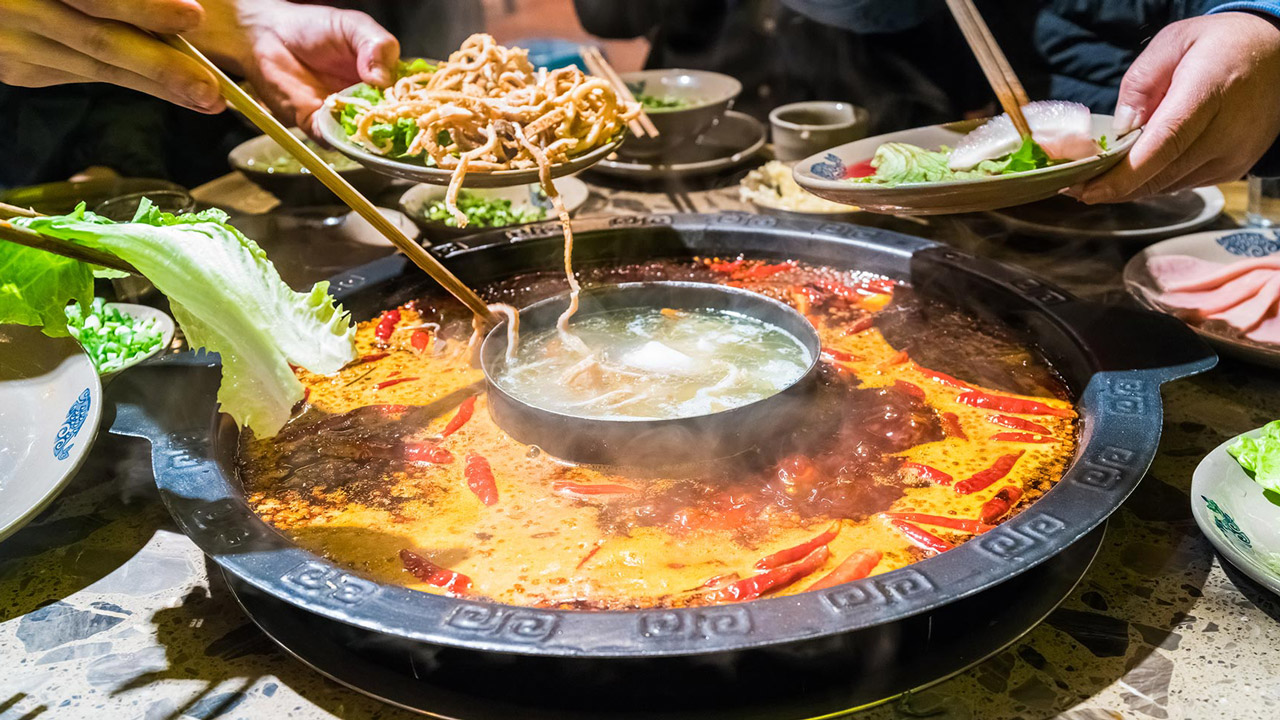
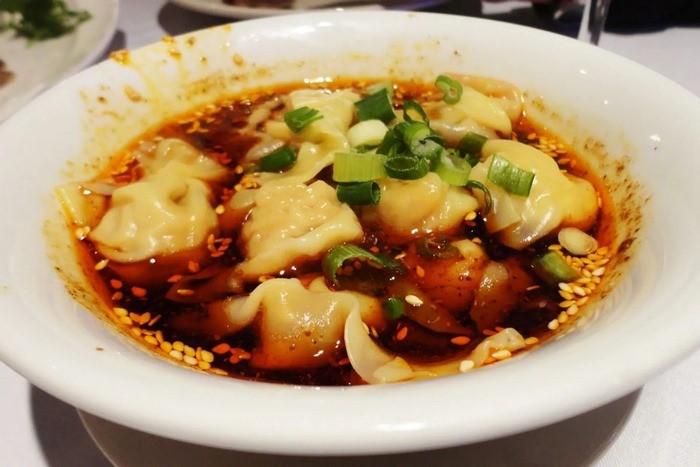

Get up close with giant pandas (# top things to do in chengdu)
Chengdu is home to the famous Chengdu Research Base of Giant Panda Breeding. Witness these adorable creatures in their natural habitat and learn about ongoing conservation efforts.

Explore Jinli ancient street (# must do in chengdu)
Step into the past as you wander through Jinli Ancient Street. Cobbled streets, traditional architecture and an abundance of local snacks make this a charming destination.
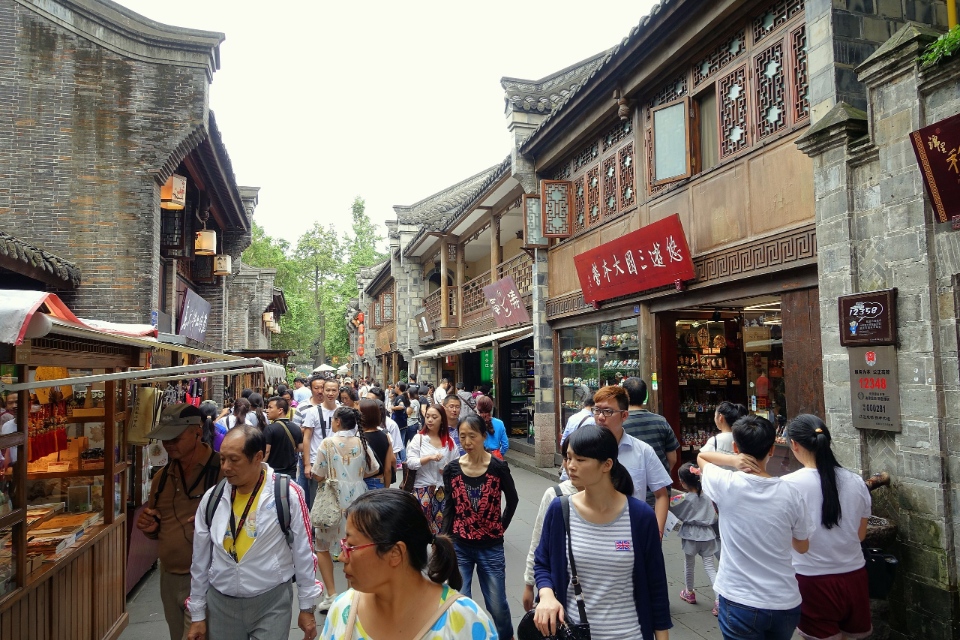
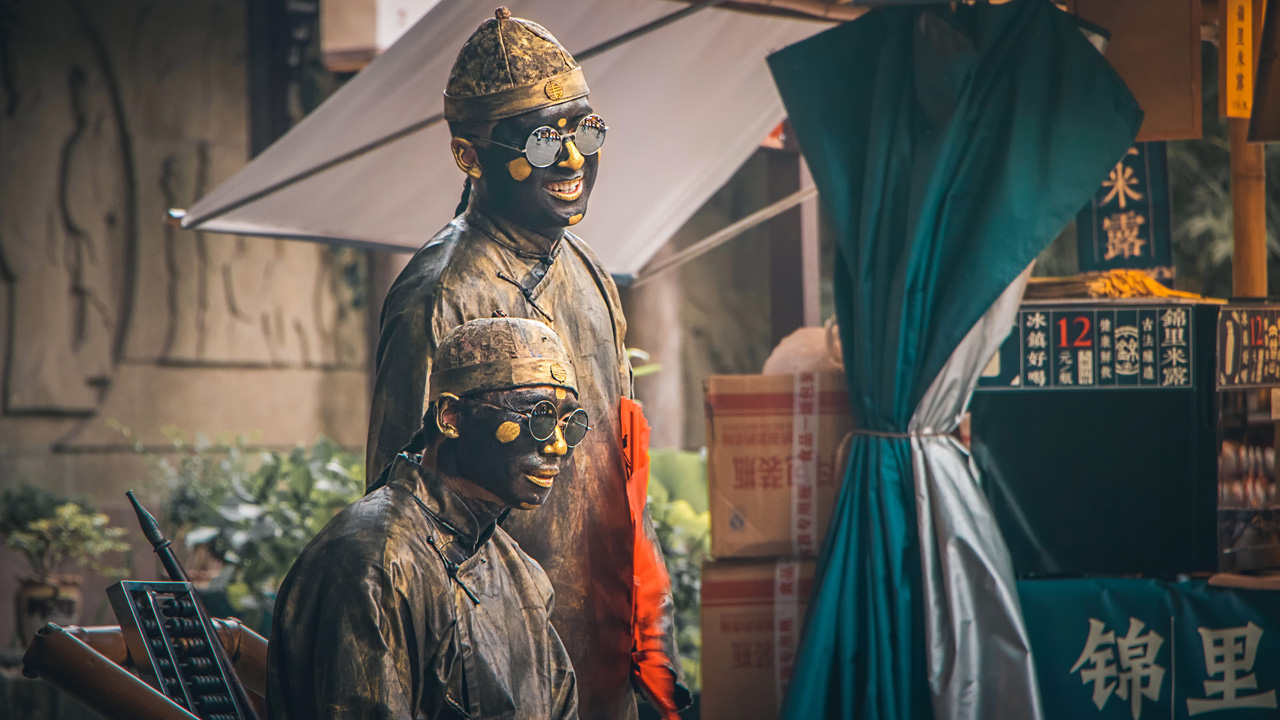
Watching Sichuan opera (# best things to do in chengdu)
Sichuan opera is a type of opera, and opera masks are the most important constituent elements in Sichuan opera. Magical face changing is a visible technique used to express a character’s invisible mood in Sichuan opera.

Marvel at the architecture of Wuhou Temple (# best things to do in chengdu)
Address: China, Sichuan, Chengdu, Wuhou District, Wuhouci Ave, 231号附2号 邮政编码: 610093
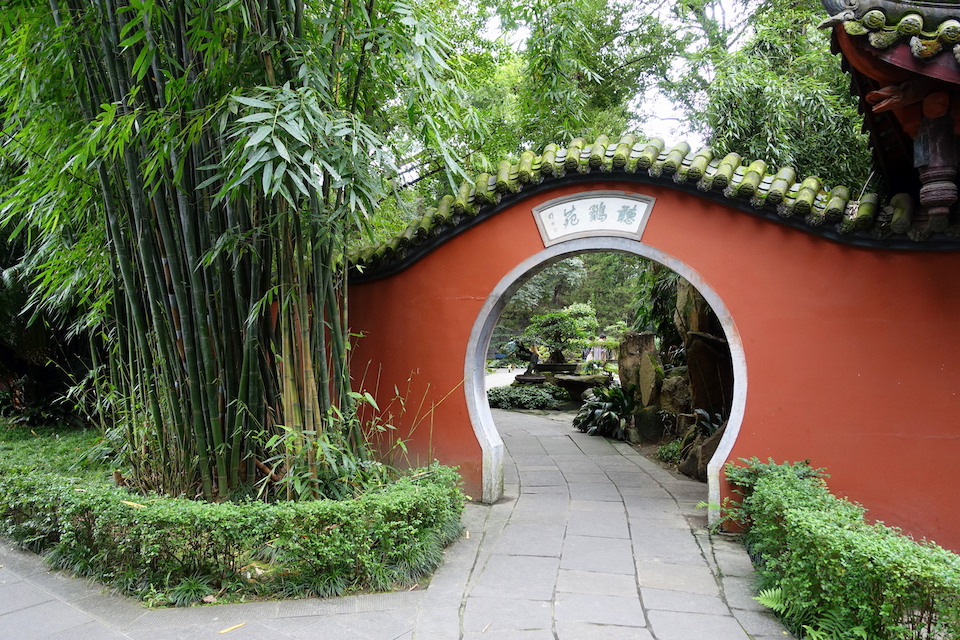
Pay your respects at Wuhou Temple (Built in the 3rd century), worshiping Zhuge Liang, a famous strategist of the Three Kingdoms period. The intricate architecture and peaceful surroundings are captivating.
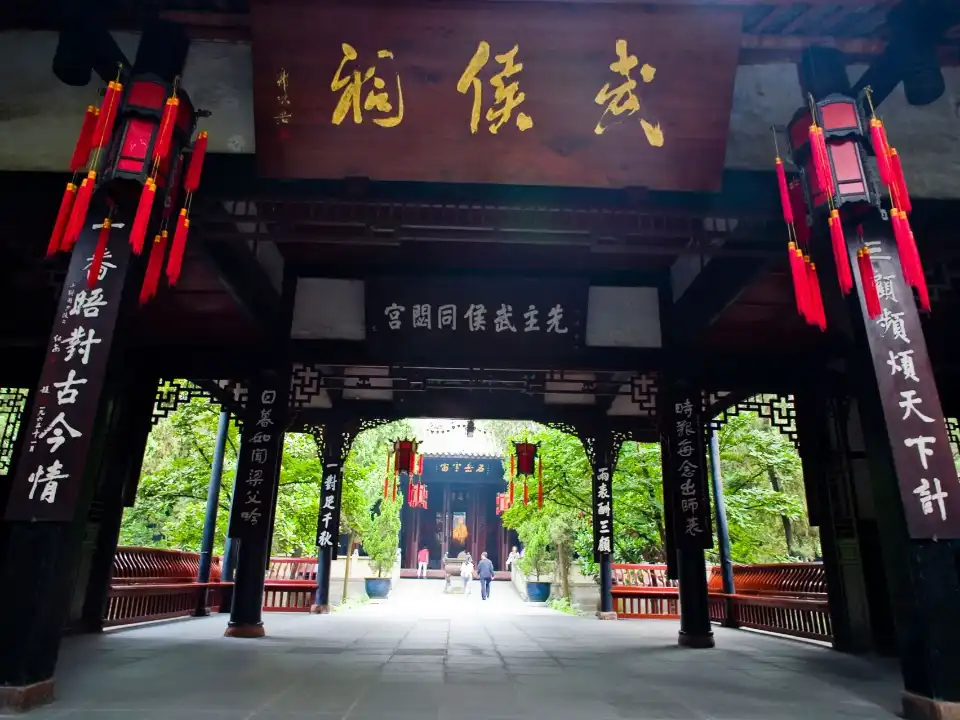
Visit Wenshu Monastery (Manjushri Monastery) (# chengdu things to do)
Address: 66 Wenshuyuan St, Qingyang District, Chengdu, Sichuan, China, 610084
Spreading over an area of over 48,500 square meters, Wenshu Monastery is a tranquil complex consisting of five temples crafted from wood and stone. Established in 1691 on the ruins of an ancient monastery dating back to the Northern–Southern dynasties (420-589), it has notable highlights.
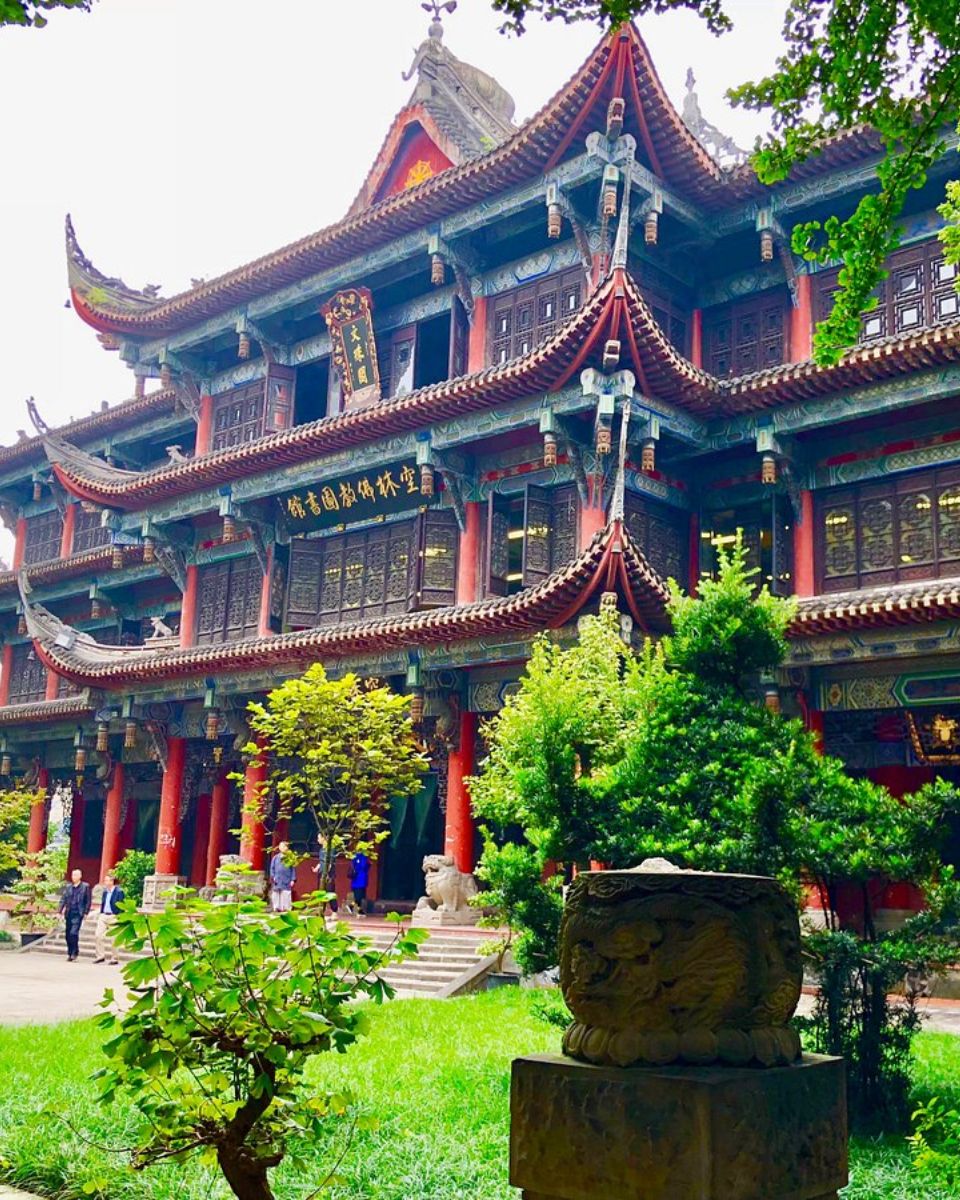
Explore the Shuofa Tang Hall decorated with 10 iron statues of Buddhist guardian deities from the Song Dynasty (960-1279), along with more than 100 bronze sculptures of Buddhas and saints from Qing Dynasty (1644-1911), crafted from jade, wood, and more.
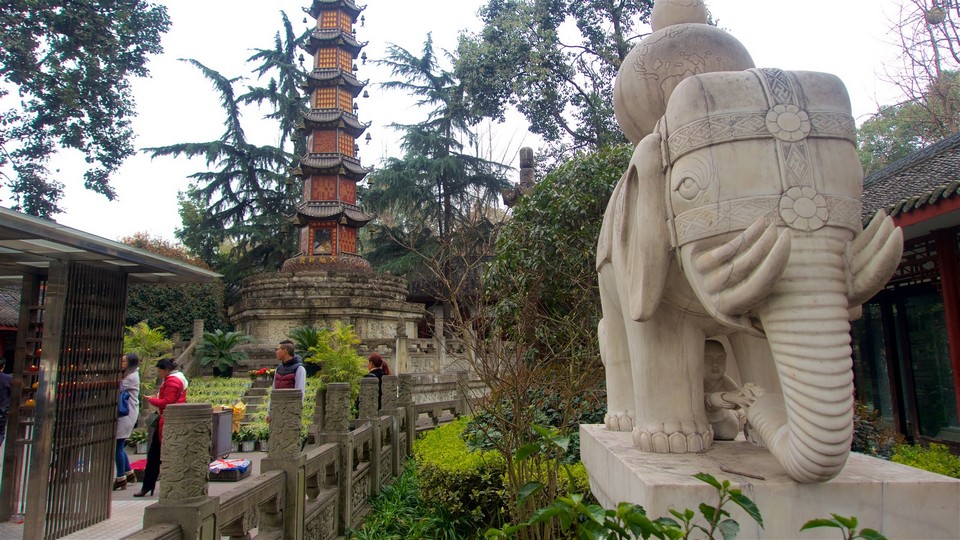
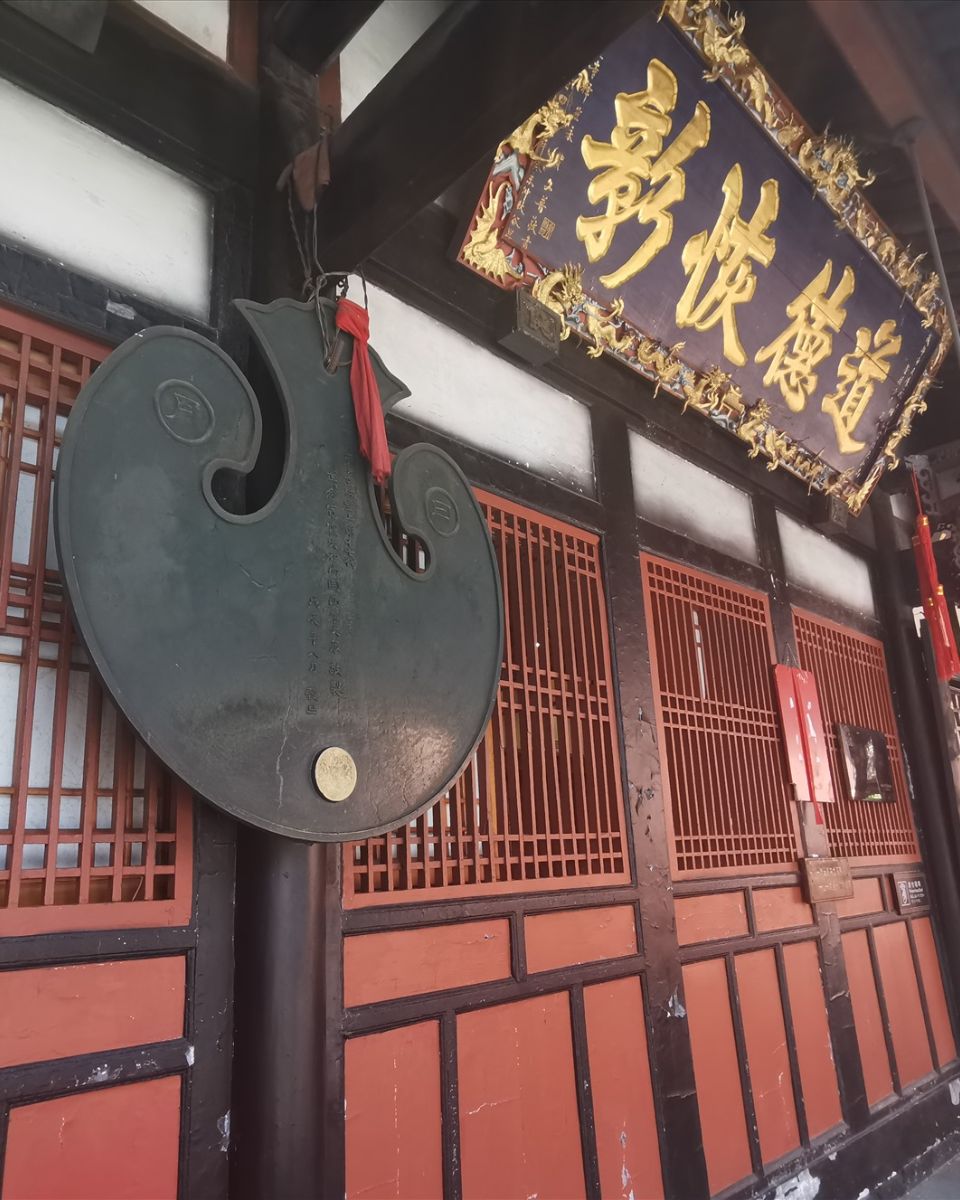
This place also preserves valuable relics such as paintings and calligraphy by famous Chinese artists and offers traditional flavors at the on-site tea shop.
Du Fu Thatched Cottage (# chengdu what to see)
Address: 28 Caotang Road, Qingyang, Chengdu, Sichuan
The vast Du Fu Thatched Cottage complex in Chengdu covers 24 acres and honors one of China’s most famous poets. This replicates the house where Du Fu lived from 759 to 763 and wrote more than 250 of his famous poems.
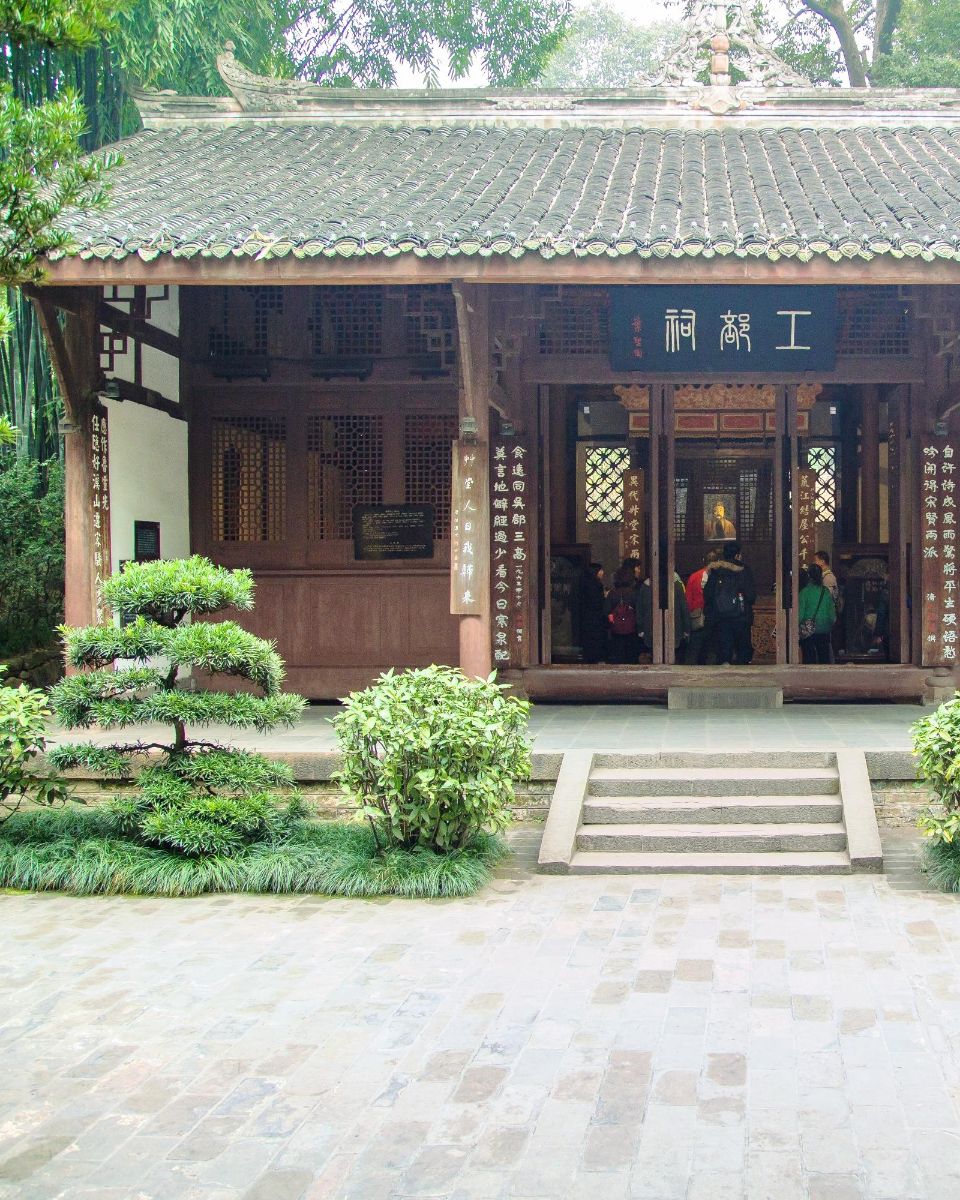
Nestled along the charming curve of the Huai River, the complex boasts beautiful gardens, numerous pavilions, and picturesque bridges and walkways.
Although not original, most of the buildings date from 1500-1800 and were meticulously restored in 1949. The main attraction is the Gongbu Memorial Hall, which showcases the life and Du Fu’s career, part of which is in foreign languages.
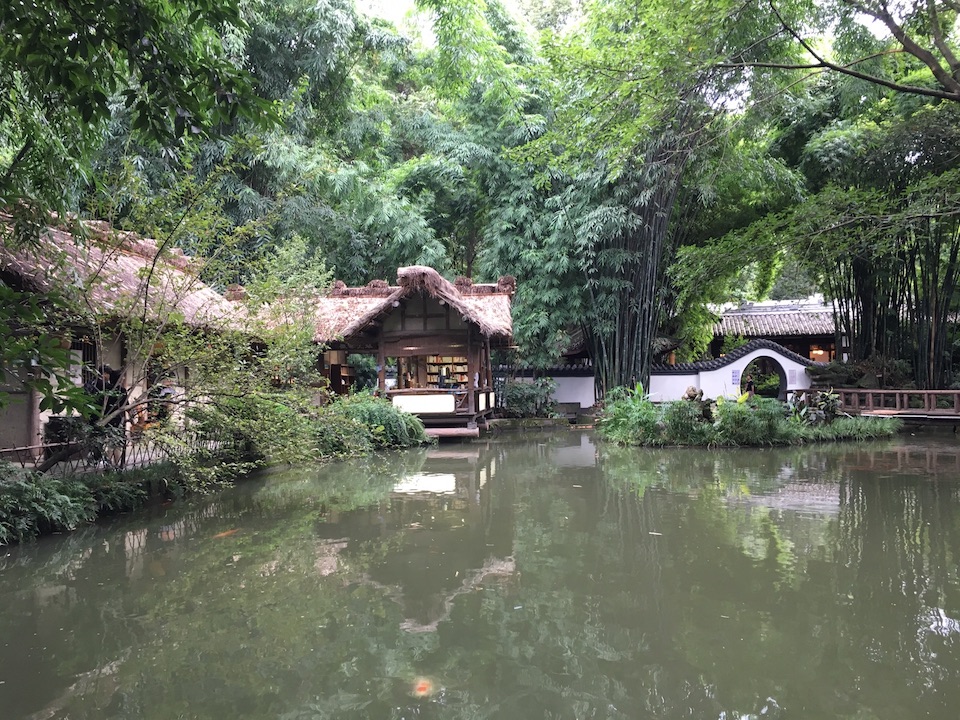
The reconstructed cottage itself, a modest structure with a study, bedroom and kitchen, is open to visitors. The Hall of Great Poets also welcomes visitors to view scenes from his famous poems, including one about an original house destroyed by a storm.
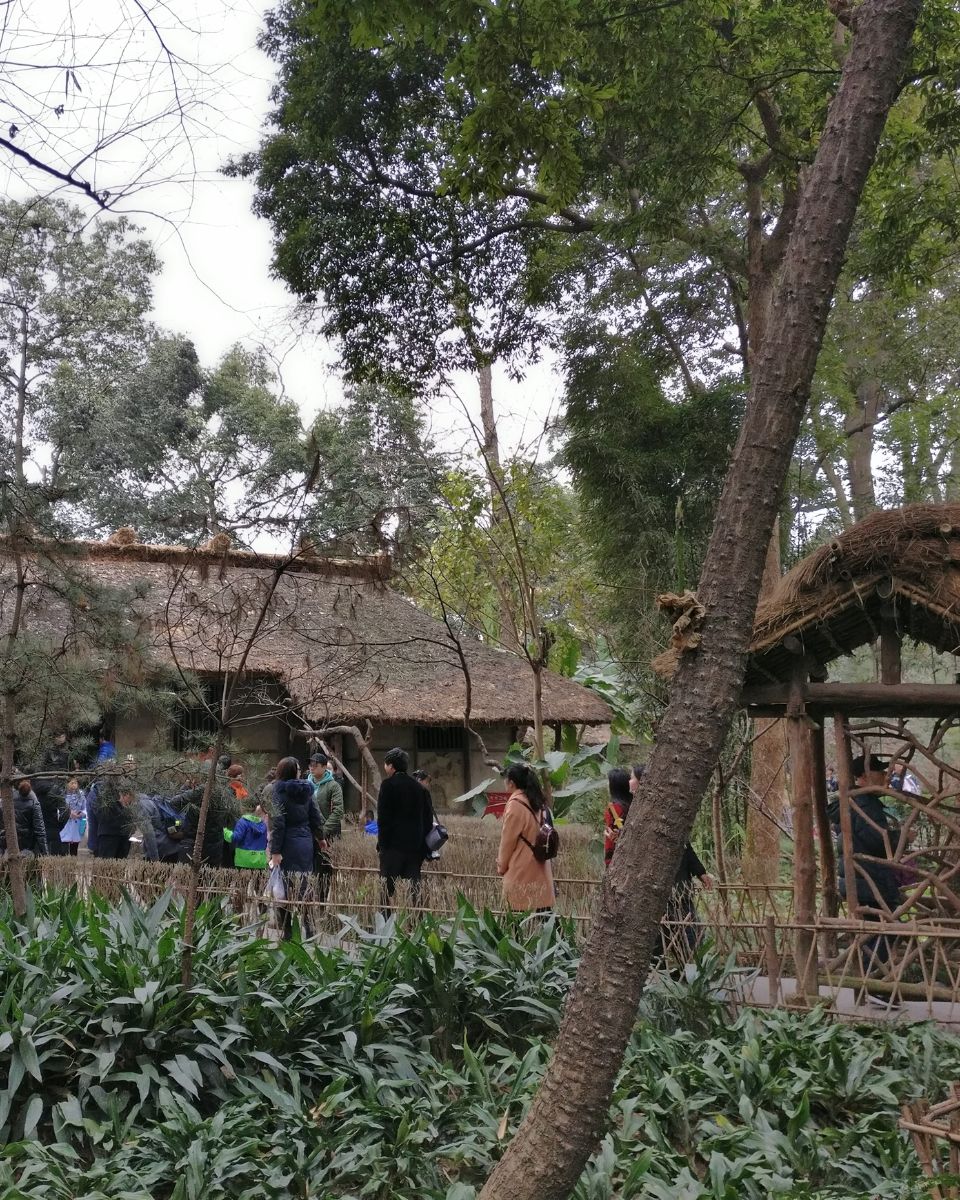
Relax at People’s Park (Renmin Park) (# chengdu what to do)
Escape the hustle and bustle of the city at People’s Park, where you can join locals in practicing tai chi, sipping tea or simply relaxing in this peaceful oasis.
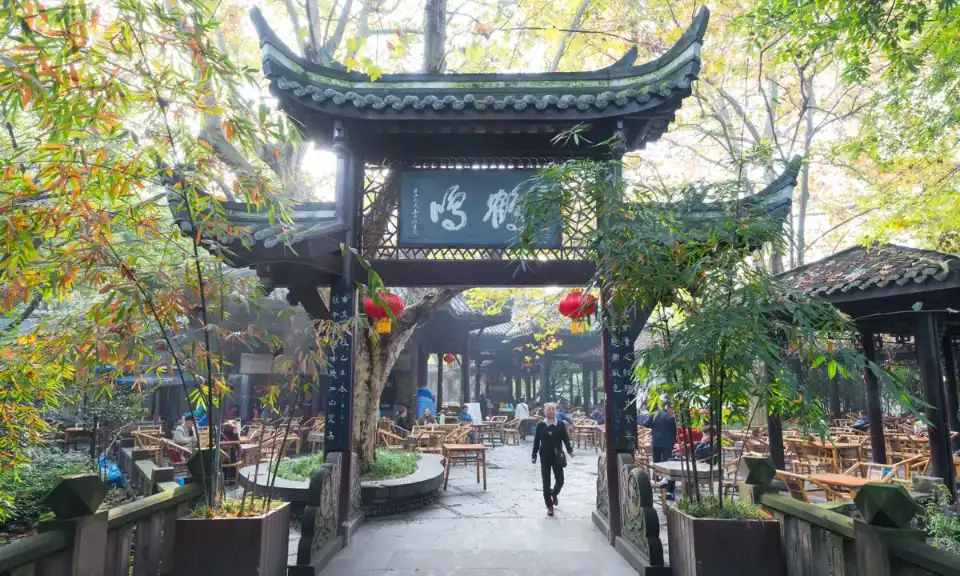
Explore the Leshan Giant Buddha
Address: 2345 Lingyun Rd, Shizhong District, Leshan, Leshan, Sichuan, China, 614099
Start your journey to admire the Leshan Giant Buddha, a UNESCO World Heritage Site. Carved into a cliff, this colossal statue is a testament to ancient craftsmanship.
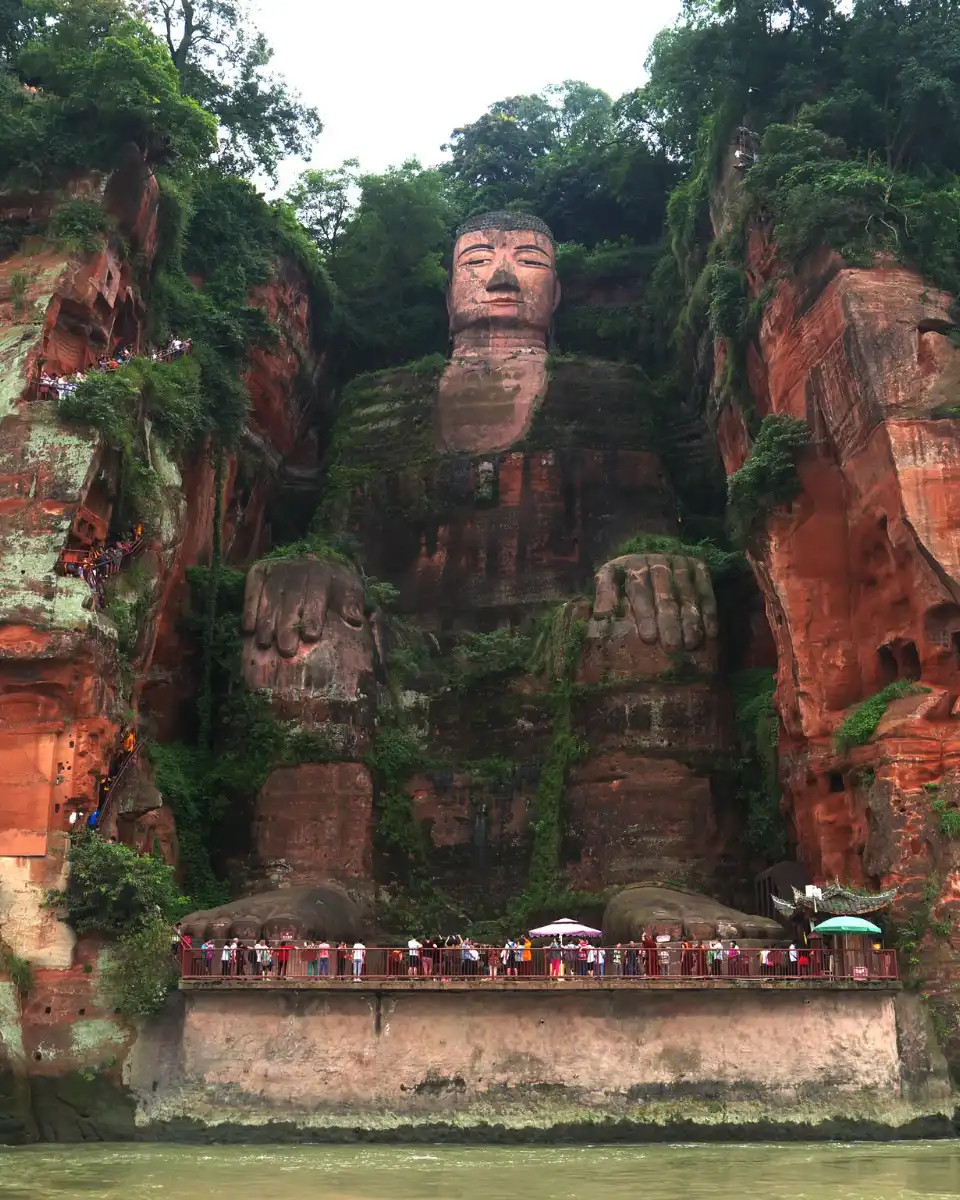
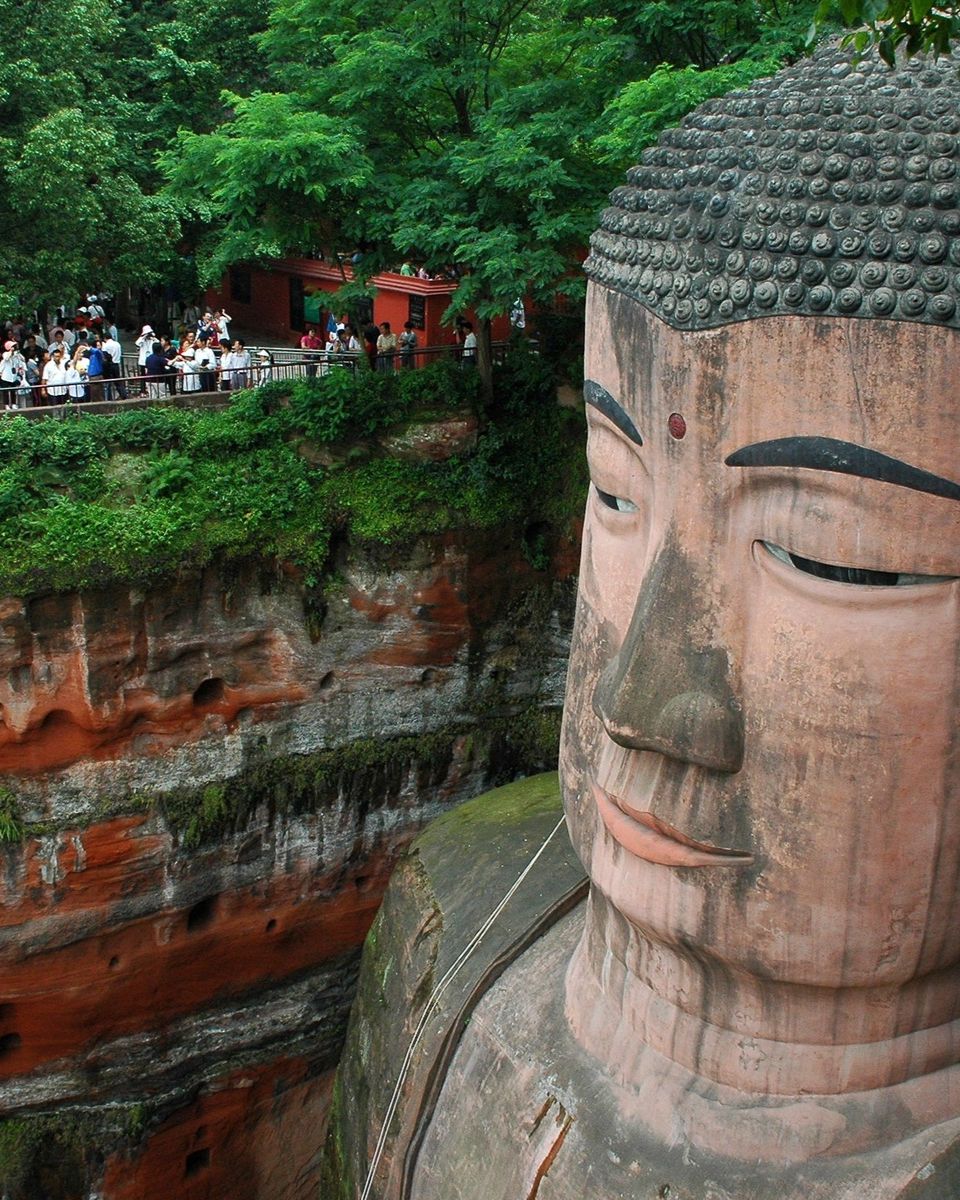
The Leshan Great Buddha is 71 meters high and carved directly from the surrounding cliffs, this incredible feat was begun by a Buddhist monk named Haitong in 713. After his death, the work was continued by a number of other monks and artists until it was completed in 803.
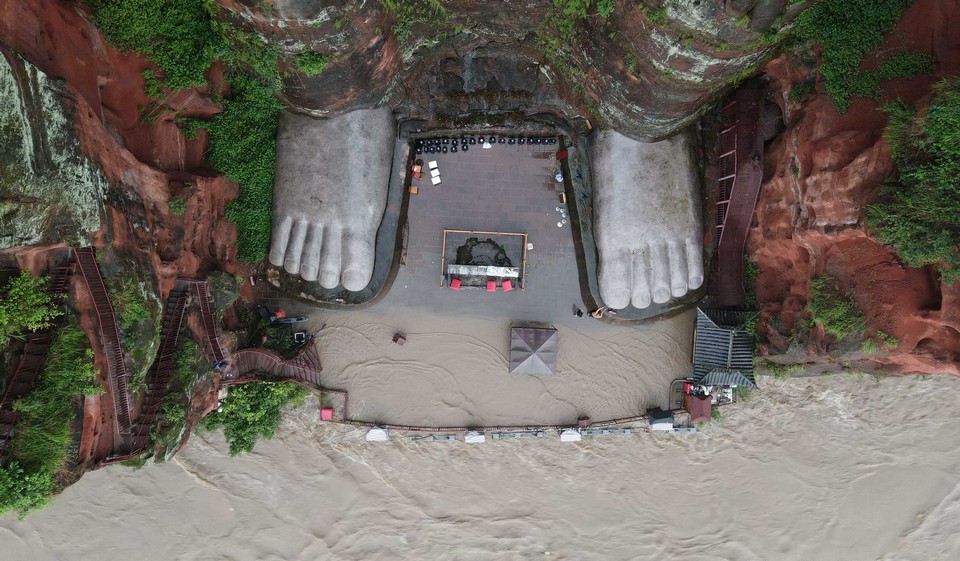
Explore the beauty of Emei Mountain
Mount Emei, where Bodhisattva Samantabhadra is worshiped, is located 160 kilometers southwest of Chengdu and promises an enriching experience. The peak, known as Wanfo Ding, reaches an impressive height of 3,099 meters.
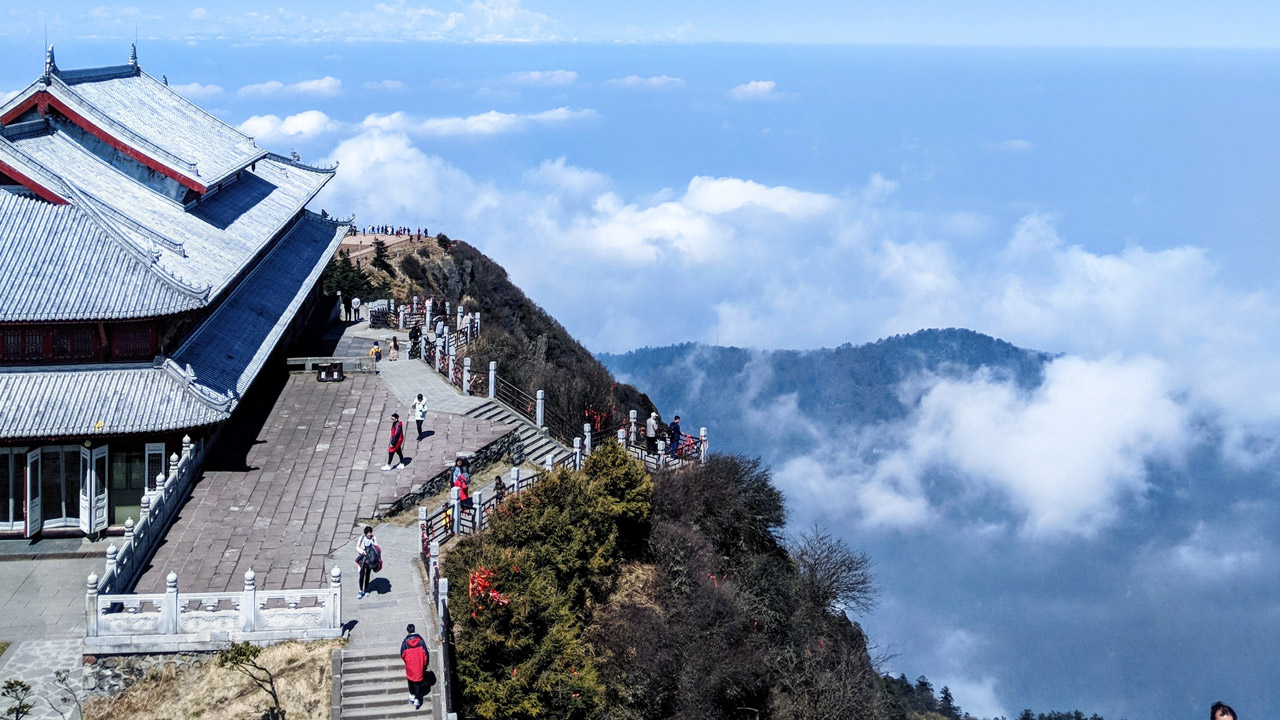
This peak has special significance to Chinese Buddhists as one of the The four sacred Buddhist mountains, which include Wutai Mountain in Shanxi Province, Jiuhua Mountain in Anhui Province, and Putuo Mountain in Zhejiang province.
Shrouded in both mystery and mist, the origins of the first Taoist temples on Emei Mountain date back to the Eastern Han Dynasty (25-220).
The Tang Dynasty (618-907) marked a pivotal change, transforming it into a prominent destination for Buddhist pilgrims thanks to its more than 200 large and small temples. Despite the passage of time, about 20 temples and monasteries still exist, bearing witness to the mountain’s rich spiritual heritage.
Sightseeing of Jianmen Pass
Location: Jiange County, Guangyuan, Sichuan, China.
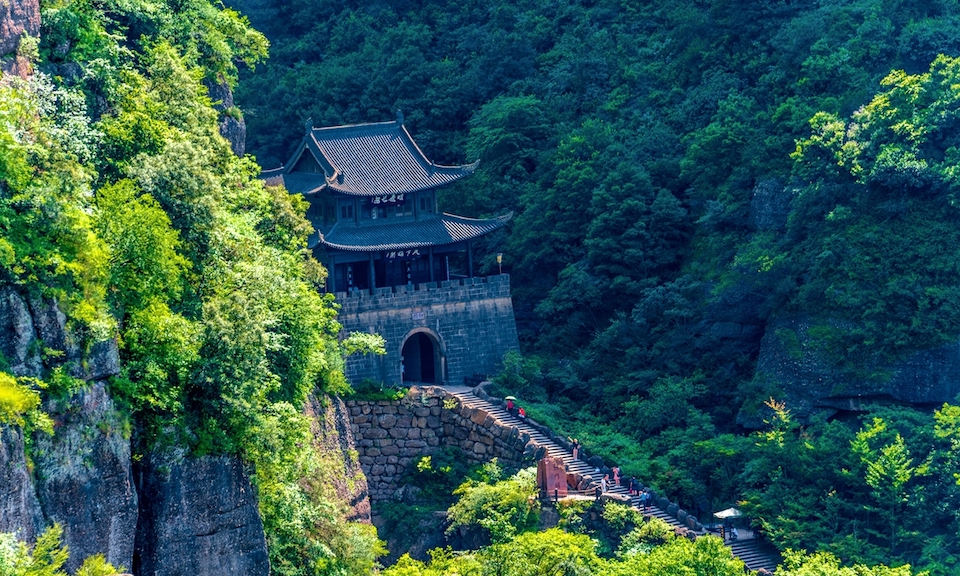
For travelers seeking adventure and cultural exploration, the Jianmen Scenic Route is a must-see destination from Chengdu via the ancient Sichuan Road, known as Shudao.
Although this round trip is over 300km long, it’s an experience well worth embarking on, whether you’re traveling alone or as part of a smaller group with professional tours departing regularly from Chengdu.
This scenic route will lead you to Jianmen Pass. It is famous for its steep slopes, surrounded by a landscape of some 72 mountain peaks, along with many important historical and cultural sites. Among the highlights are the Old Plank Road, Thousand Buddha Cliff, Douchui Mountain and Huangze Temple.
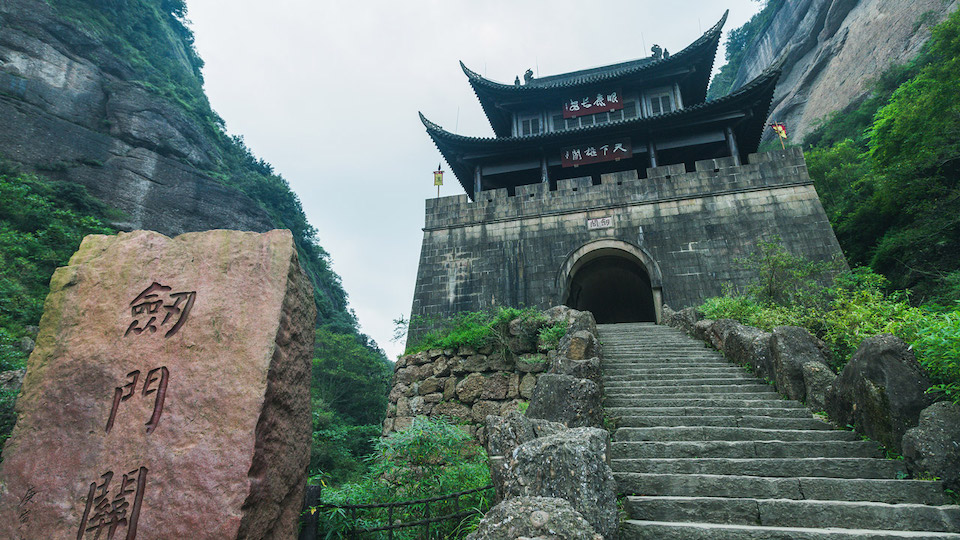
The tour’s crowning jewel, however, is the meticulously reconstructed gate—an exquisite replica of the original. This gate played an important role in protecting the road during the Ming Dynasty and for centuries afterward.
Take a trip to Mengdingshan Tea Plantation
No visit to Chengdu would be truly complete without a journey to an authentic tea plantation.
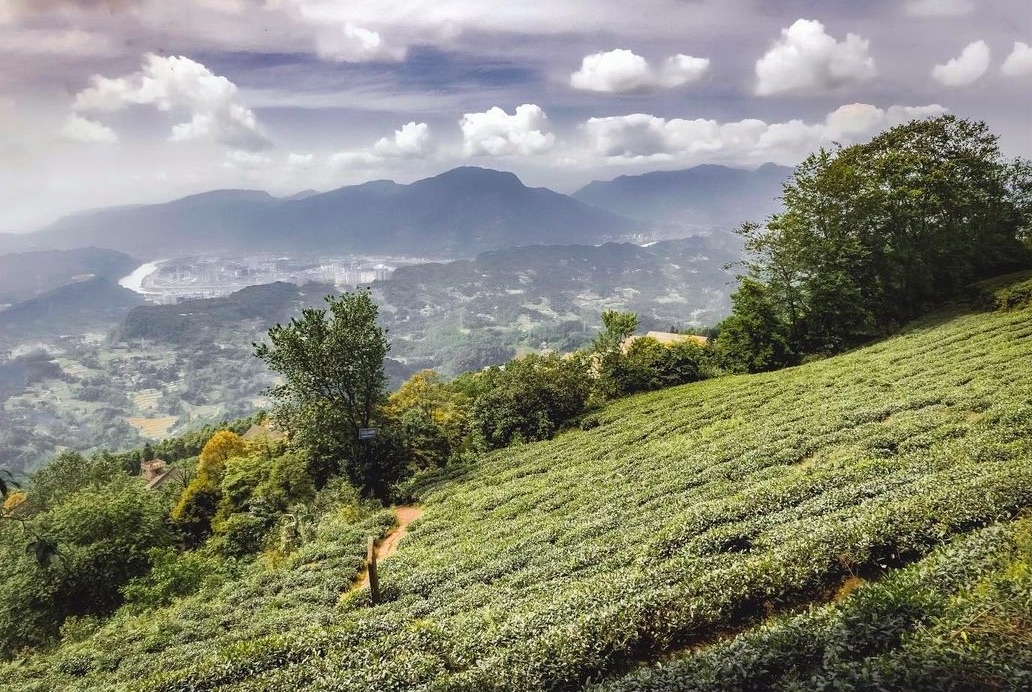
Among China’s most historic tea growing regions, Mengdingshan is just a 2-hour journey from the city, making it an easily accessible day trip.
While admiring the picturesque landscapes, a plantation tour offers a unique opportunity to explore the world of tea. Here, you can better understand different types of tea and their importance in Chinese tradition and culture.
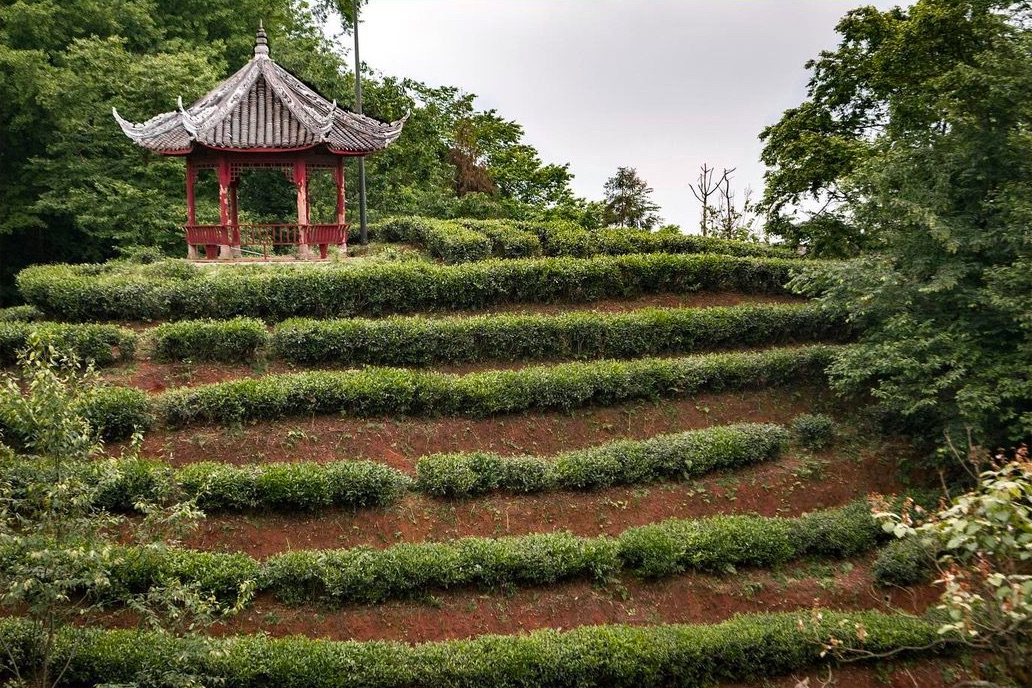
This is an opportunity to enjoy not only the natural beauty of the area but also the rich heritage of Chinese tea production.
Find peace in Qingcheng mountain
Nature enthusiasts will find solace on Qingcheng Mountain, a peaceful mountain with lush forests and Taoist temples. Hiking trails offer breathtaking panoramic views.
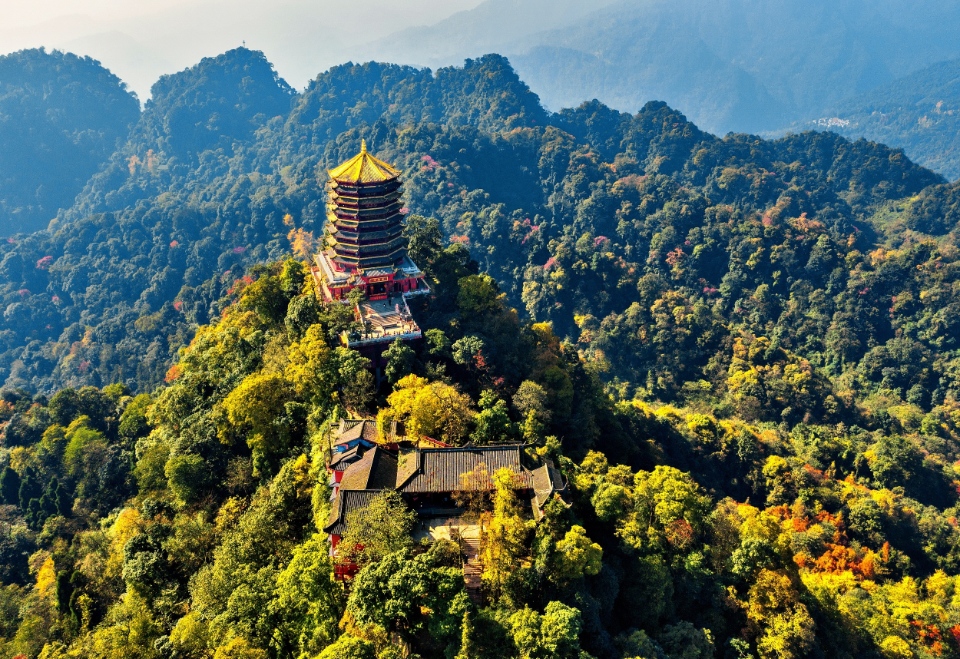
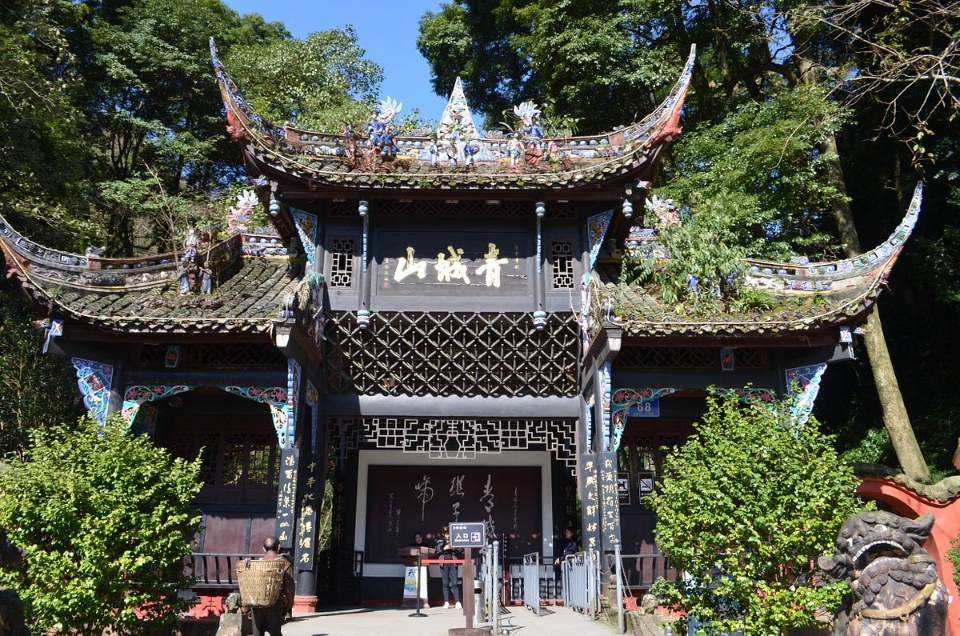
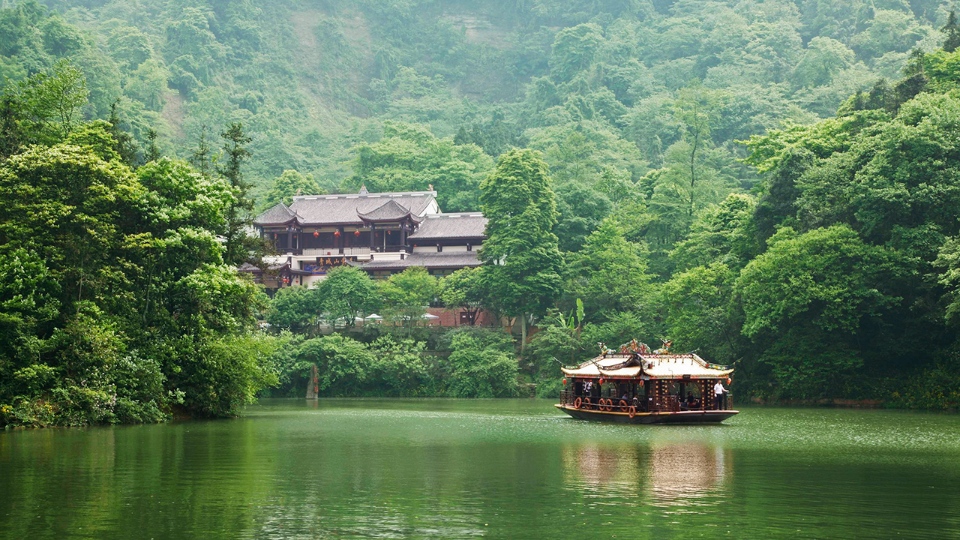
Qingyang Palace: Taoist Treasures in Chengdu
Address: 9 W Section 2, Ring Road 1, Qin Tai Lu, Qingyang District, Chengdu, Sichuan.
Hours: 8 AM–6 PM
Located within walking distance from Wenshu Monastery, Qingyang Palace is an important Taoist temple in Chengdu. This historical site has deep roots dating back to the 7th century Tang Dynasty.
Over the centuries, various parts of the temple have been built, rebuilt and restored, making it a fascinating place to explore.
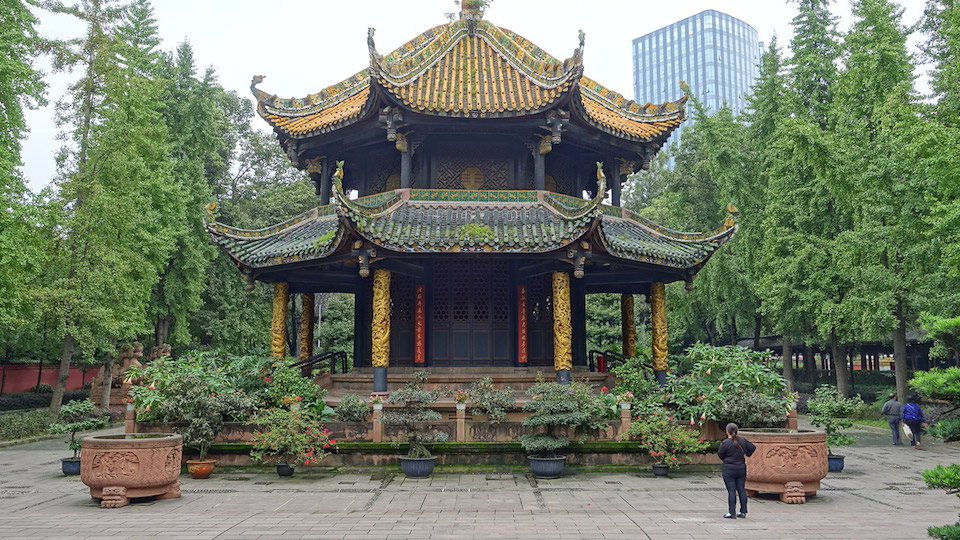
Highlights:
- Bagua: The most notable structure in Qingyang Monastery is the Bagua. It features a unique octagonal shape, a large glass dome, and columns with intricately decorated dragon carvings. A visit to this pavilion is a must for its architectural beauty and cultural significance.
- Bronze statues: Qingyang Monastery is home to the famous bronze statues, originating from Beijing. These statues have cultural and historical significance and are tourist attractions.
- Taoist artifacts: The temple contains a significant collection of important Taoist artifacts. Exploring these relics provides insight into Taoist culture and practices.
- Teahouse: If you have time, consider visiting the onsite teahouse. Enjoying a cup of tea here can be a soothing and culturally enriching experience.
Chengdu Huangcheng Mosque: Important Islamic Heritage in Chengdu
Address: 2 Xiaohe St, Luomashi, Qingyang District, Chengdu, Sichuan, China, 610020
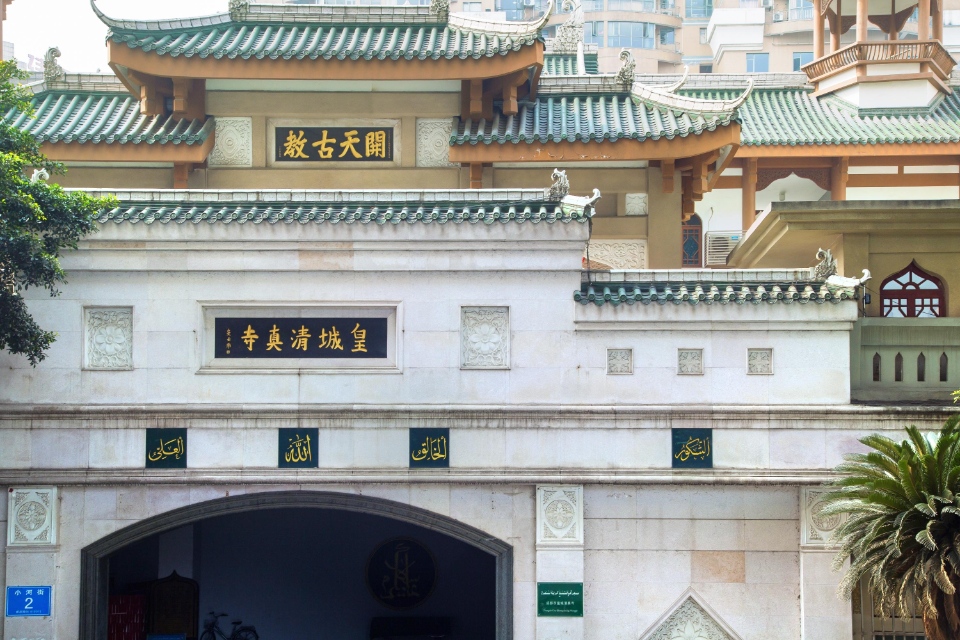
The Huangcheng Mosque, located in the heart of Chengdu’s old Xicheng district, is one of China’s most important Muslim sites with a history dating back to the 18th century.
Despite suffering significant damage during a Japanese air raid in 1941, the mosque continues to be a prominent landmark known for its unique blend of traditional Chinese and architecture influenced by Arabia.
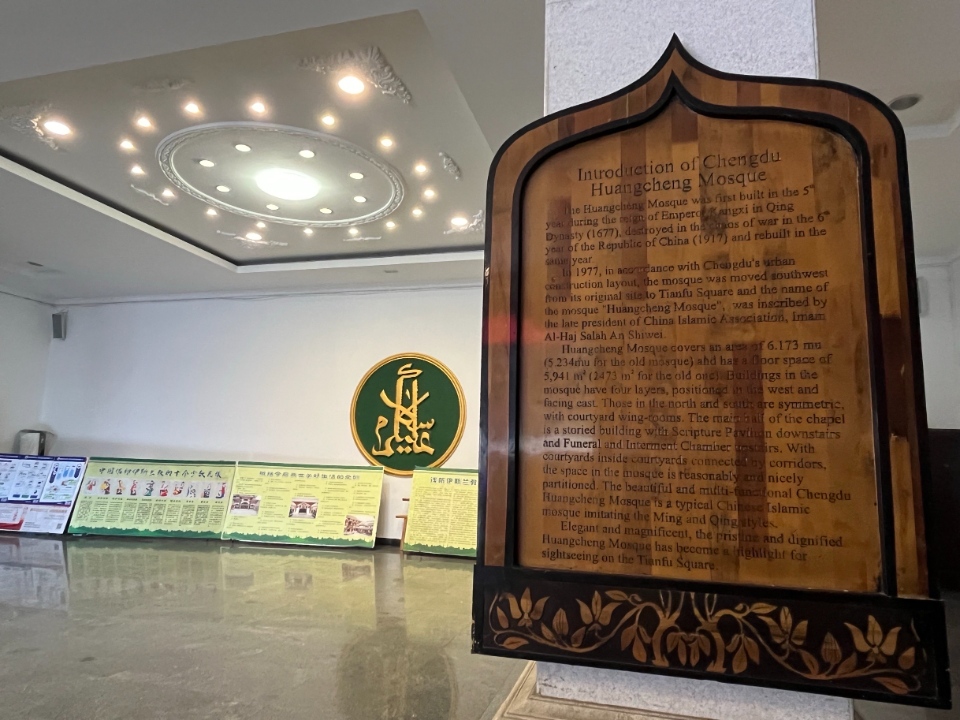
Highlights:
- Architectural fusion: The Huangcheng Mosque’s distinction lies in its architectural fusion, blending traditional Chinese design with Arabic influences. The white walls of the mosque are decorated with colorful accents creating an eye-catching appearance.
- Prayer hall: The mosque boasts a spacious 16-meter-long prayer room decorated with original tiles. It serves as a central place for worship and reflection.
- Courtyard: A beautiful central courtyard enhances the aesthetics of the mosque and provides visitors with a quiet space for contemplation.
- Gates: The mosque has two gates that are part of the architectural complex.
- Library: The mosque has a library containing many block-printed Korans written in both Arabic and Chinese. This collection adds to the historical and educational significance of the mosque.
To find out the exact date of the mosque’s construction, look for the beam with the plaque reading “7th year of the Qianlong empire” – a historical marker that shows the mosque was founded in 1742.
Anshun Bridge: A beautiful scenic spot in Chengdu
Address: Binjiang East Road, Jinjiang District, Chengdu, Sichuan.
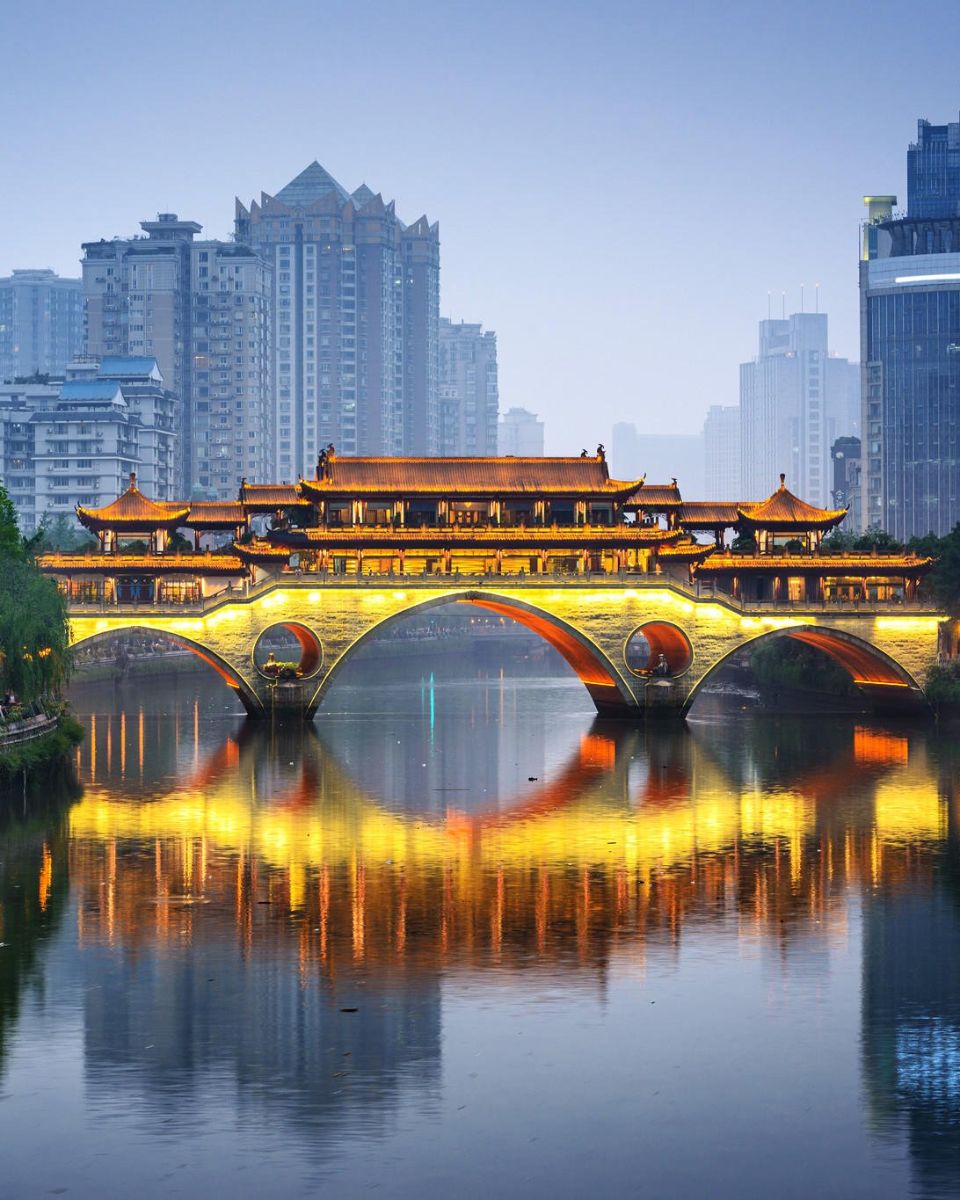
Anshun Bridge is undeniably one of Chengdu’s most charming architectural gems. This beautiful structure spans the Jin River and has become an iconic landmark of the city.
Although the current bridge is a faithful replica dating from 2003, its history can be traced back to its predecessor, which was first built in 1746 and later destroyed by the devastating flood in 1947.
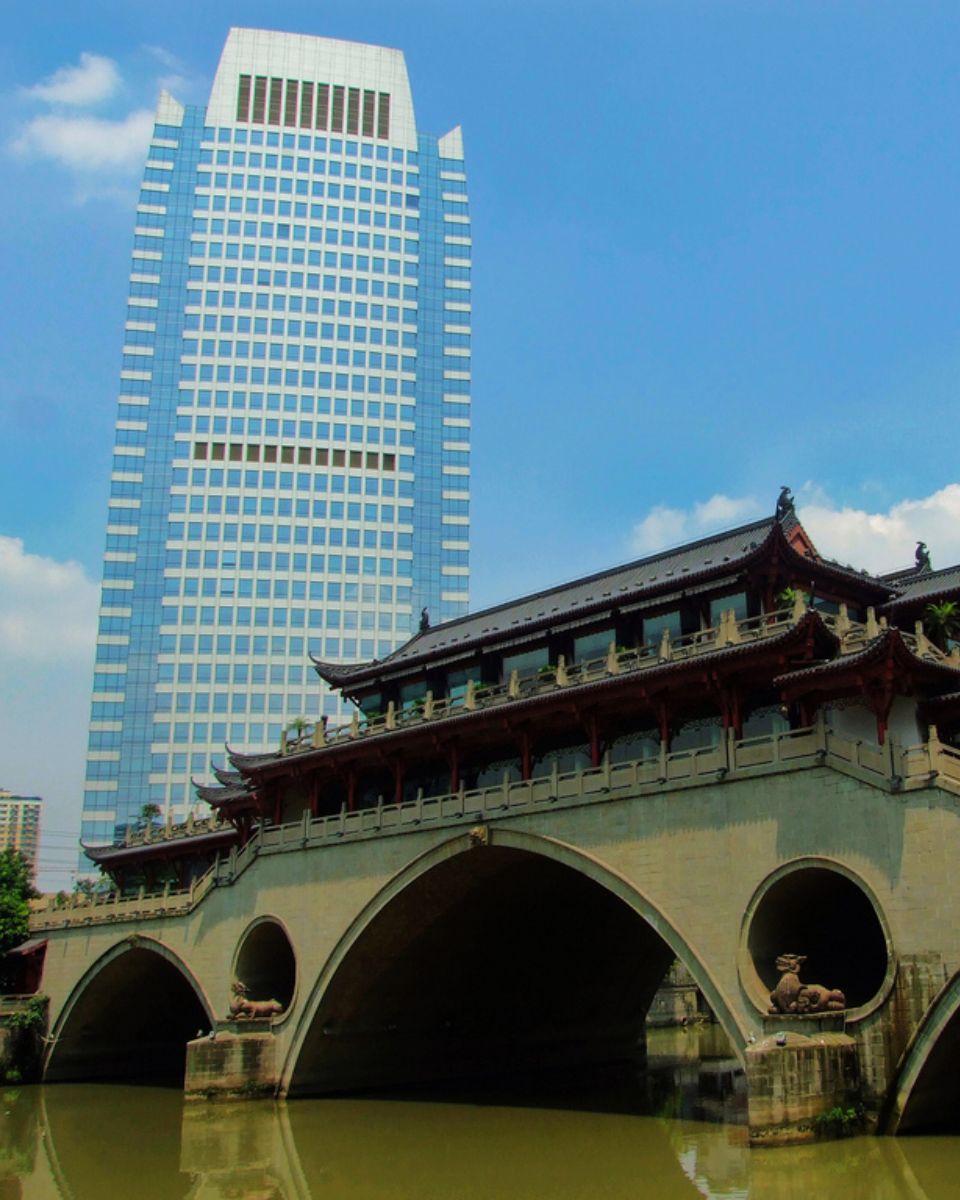
This picturesque bridge is especially enchanting to visit at night as it is illuminated along with the surrounding cityscape. In addition to its aesthetic appeal, Anshun Bridge also serves as a convenient walkway across the wide river.
In addition, the bridge also houses one of Chengdu’s most famous restaurants, giving diners the opportunity to enjoy a meal while admiring the beautiful scenery.
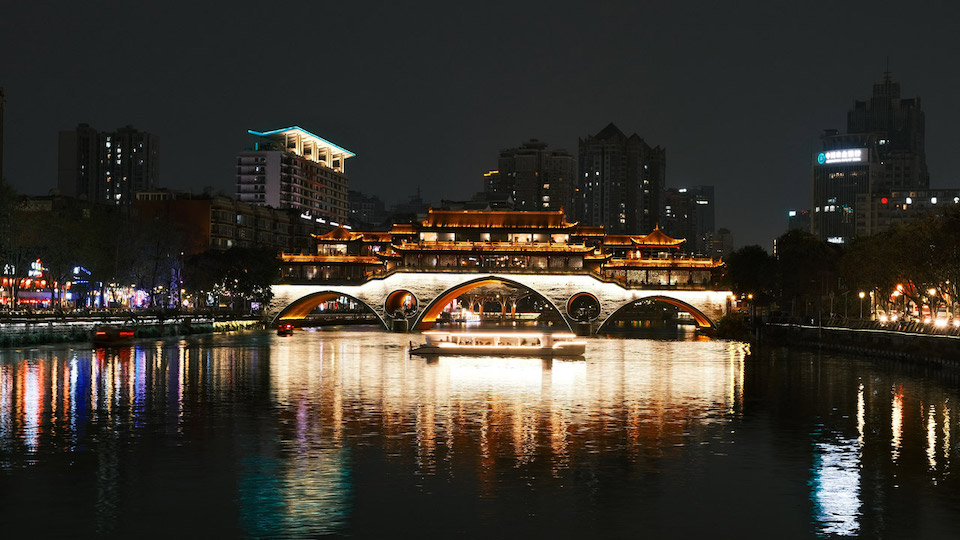
Explore the Sichuan Science and Technology Museum
Address: 16 Renmin Middle Rd Area 1, Luo Ma Shi, Qingyang District, Chengdu, Sichuan.
Housed in a rather modest building, the museum is a hidden gem for those interested in science and technology, offering a uniquely Chinese perspective on these topics.
With an impressive 60,000 square meters of exhibition space spread over five floors, this museum is a significant attraction that requires a bit of walking but provides a rewarding experience.
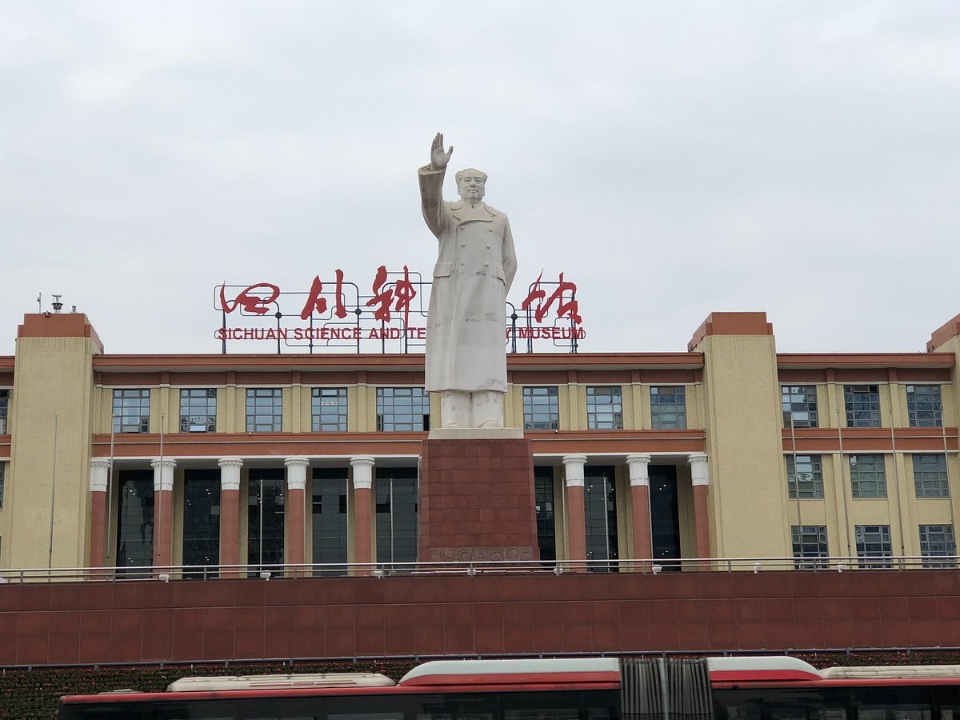
The museum boasts some 600 exhibits covering a wide range of topics, from ancient farming techniques and land use to China’s contributions to the space race, robotics and planes.
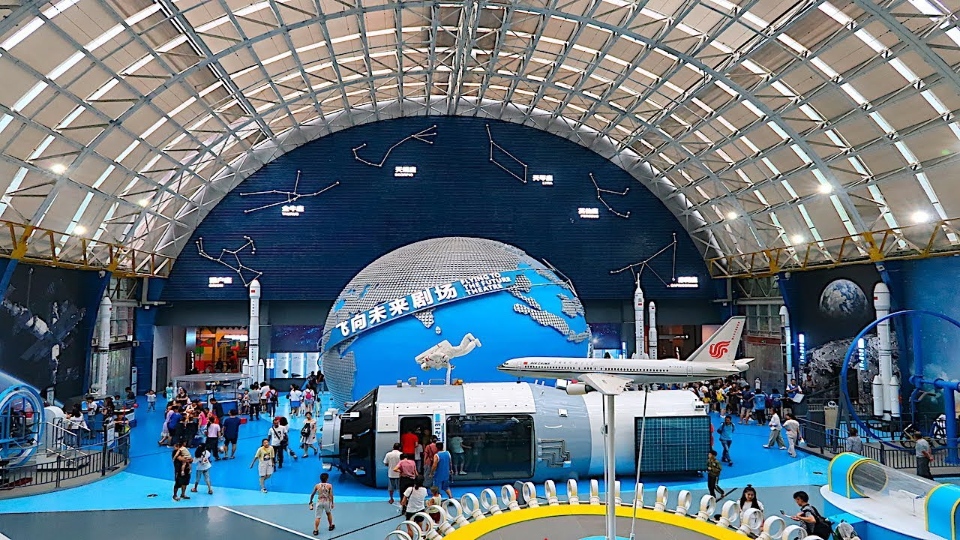
- Dujiangyan Irrigation System: Don’t miss the display dedicated to the Dujiangyan Irrigation System, an essential part of Chinese history and agriculture. It provides valuable insights into this attraction that you can explore firsthand.
- Sichuan Museum: Adjacent to the Sichuan Science and Technology Museum is the Sichuan Museum, a sizable facility with charming displays of ancient ceramics and Buddhist art collected from the region.
- Sichuan Cuisine Museum of Chengdu: If you have time, you may consider visiting the Sichuan Cuisine Museum of Chengdu. Here, you can immerse yourself in the world of Sichuan cuisine through fascinating exhibitions and even take part in fun cooking classes.
Explore Chengdu’s Marvel Skyline: The West Pearl Tower
Address: 96 Mengzhuiwan Road, Chenghua District, Chengdu, Sichuan.
Amid the ever-evolving landscape of China’s prosperous cities, towering skyscrapers have become iconic symbols of development and modernity. Chengdu, a city also following this trend, boasts the prominent West Pearl Tower, which towers 339 meters above its bustling commercial district.
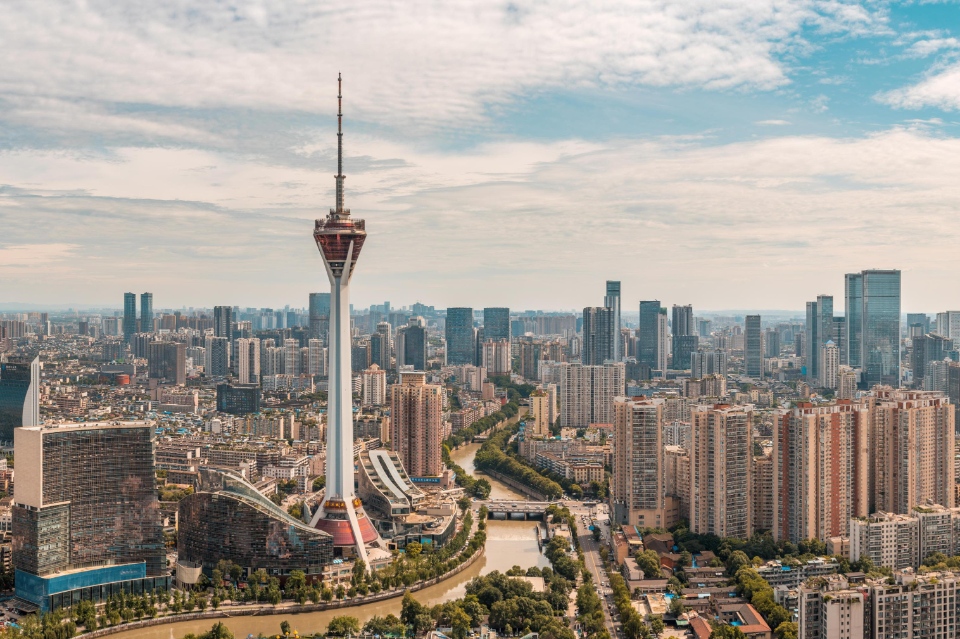
A futuristic wonder: Situated next to the Jinjiang River, West Pearl Tower is a sight to behold, like something from the realm of science fiction. Since its inauguration in 2004, this architectural masterpiece, the tallest structure in Chengdu, has captivated visitors from near and far.
Multi-faceted appeal: West Pearl Tower offers many experiences. Visitors are attracted by the observatory, which provides panoramic views of the Chengdu urban area.
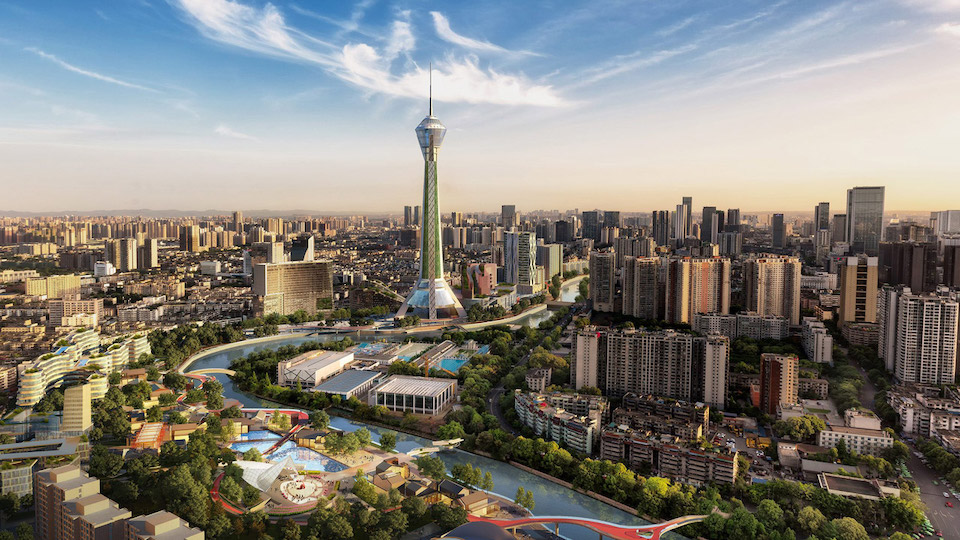
Housing a the city’s tallest restaurant, it not only offers delicious dishes but also a unique dining experience while the restaurant rotates, offering ever-changing views.
Cultural Insights: In addition to sweeping views, the tower also houses an art gallery.
Here you can explore fascinating exhibitions of traditional Chinese artwork, photography and calligraphy, providing a deeper understanding of Chengdu’s rich cultural heritage.
Immerse yourself in Chengdu tea culture
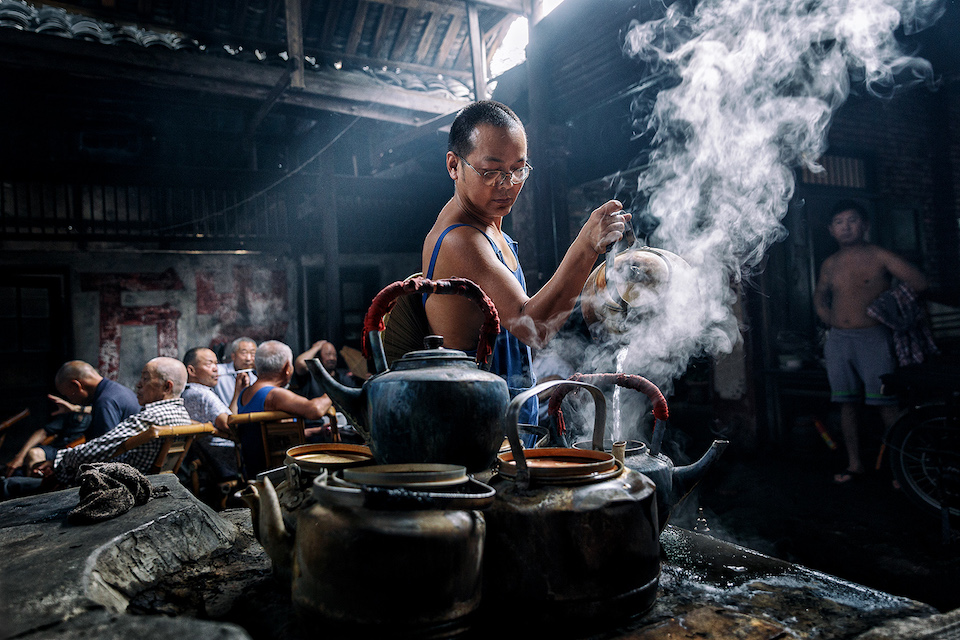
Participate in a traditional tea ceremony and learn about the significance of tea in Chinese culture. Chengdu’s teahouses are the perfect place to engage in meaningful conversations.
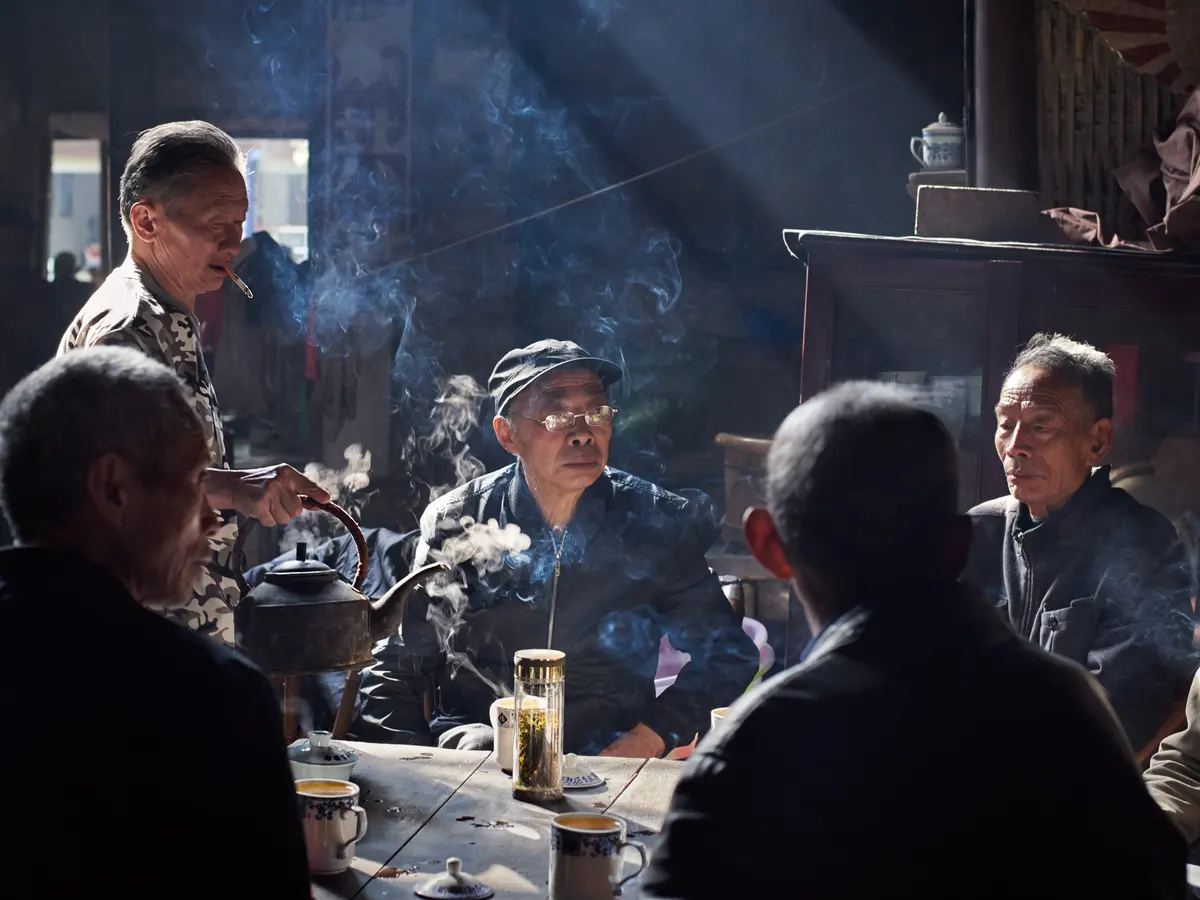
Wander the ancient alleys of Chengdu: Kuan, Zhai and Jing Xiangzi
Address: Upper Changshun Street, Qingyang District, Chengdu, Sichuan, China.
Exploring the three historic alleys nestled in Chengdu’s old town has become one of the city’s most popular activities.
These pedestrian-only alleys, characterized by their narrowness and absence of traffic, offer a fascinating journey back in time, offering a glimpse of Chengdu before industrialization and the dominance of the automobile.
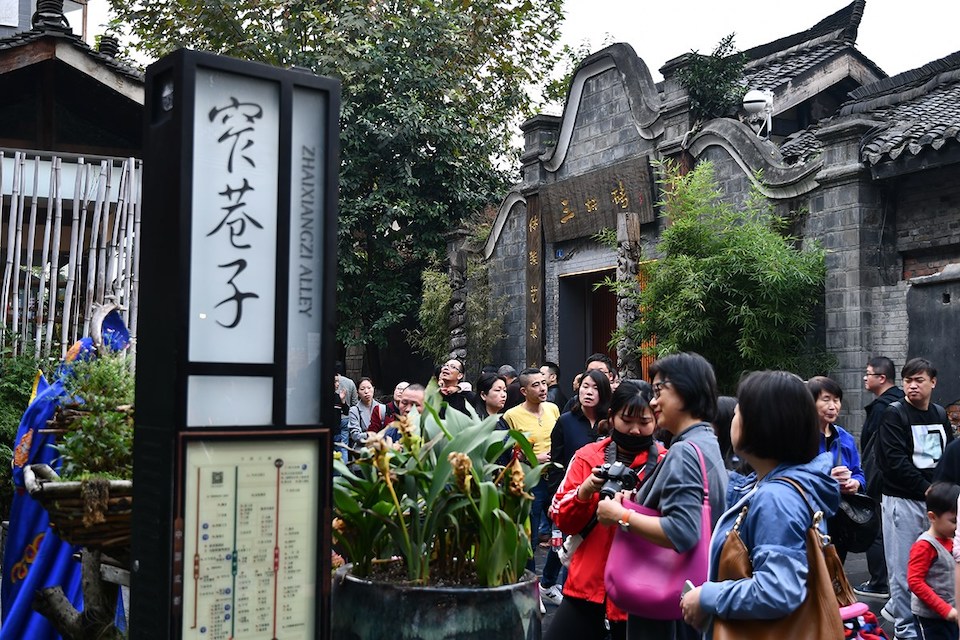
Two of these alleys, Kuan Xiangzi (Wide Alley) and Zhai Xiangzi (Narrow Alley), boast a rich history dating back to the 17th century during the Qing Dynasty when they were used as military garrisons.
Today, these ancient alleys, along with the recent addition of Jing Xiangzi (Well Alley), have been meticulously restored to their former glory. They are a living testament to Chengdu’s vibrant history and cultural heritage.
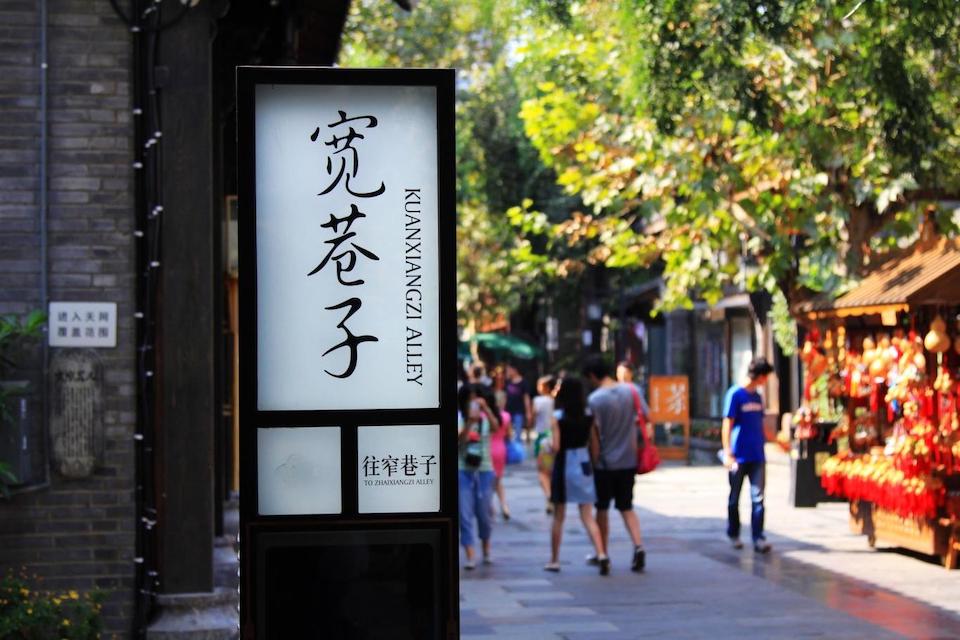
As you stroll around these charming alleys, you’ll find countless traditional shops, factories and restaurants lining the cobblestone streets.
These alleys also feature more than 20 enchanting courtyards, many of which have now been converted into appealing public spaces where you can relax while enjoying a meal or drink.
Be sure to immerse yourself in the atmosphere of a traditional teahouse—a quintessential Chengdu experience. Furthermore, the area boasts several important religious sites, including Wenshu Monastery and Daci Temple.
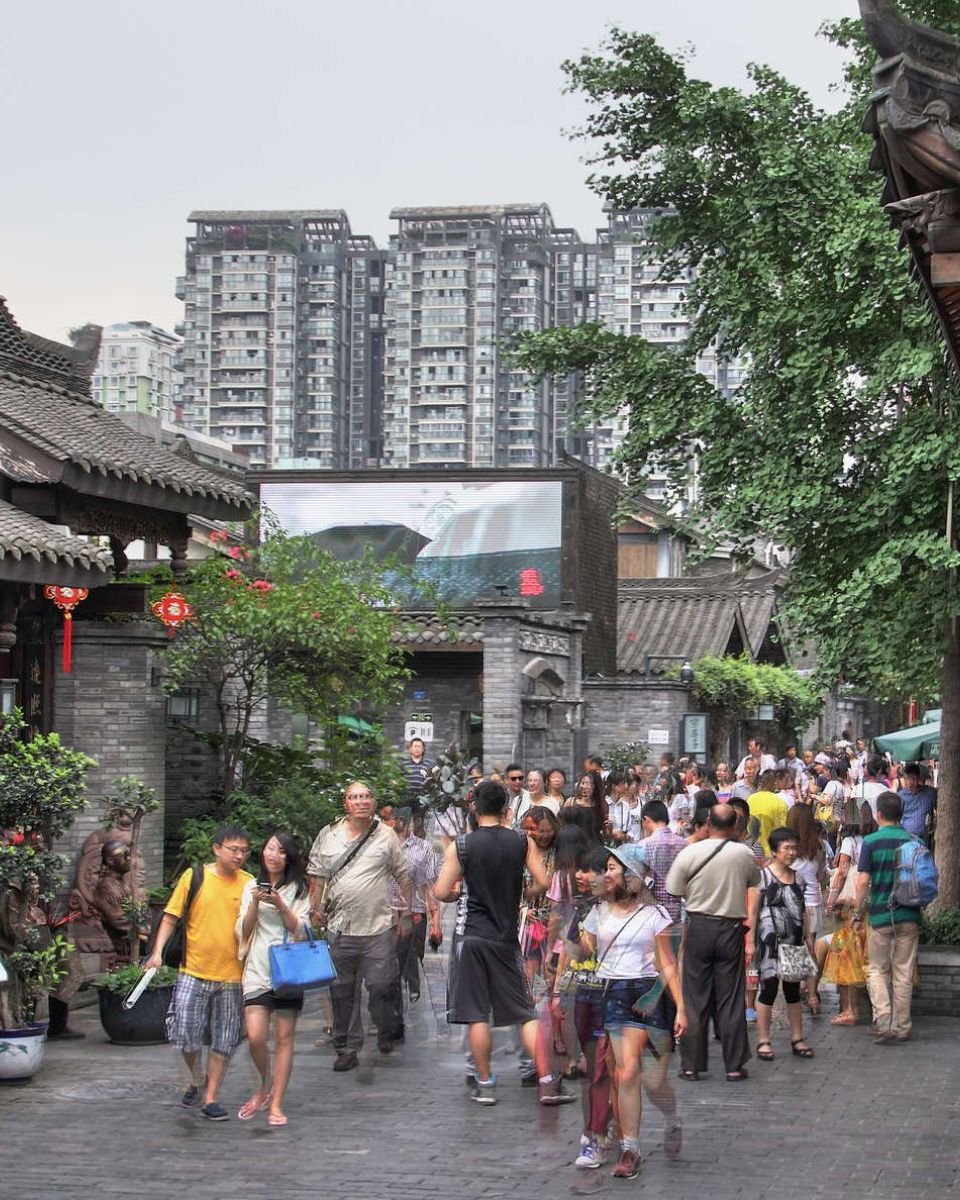
Visit Huanglongxi Ancient Town
Embark on a day trip to Huanglongxi Ancient Town, located just an hour from Chengdu, offering a wonderful opportunity to immerse yourself in the charm of ancient China.
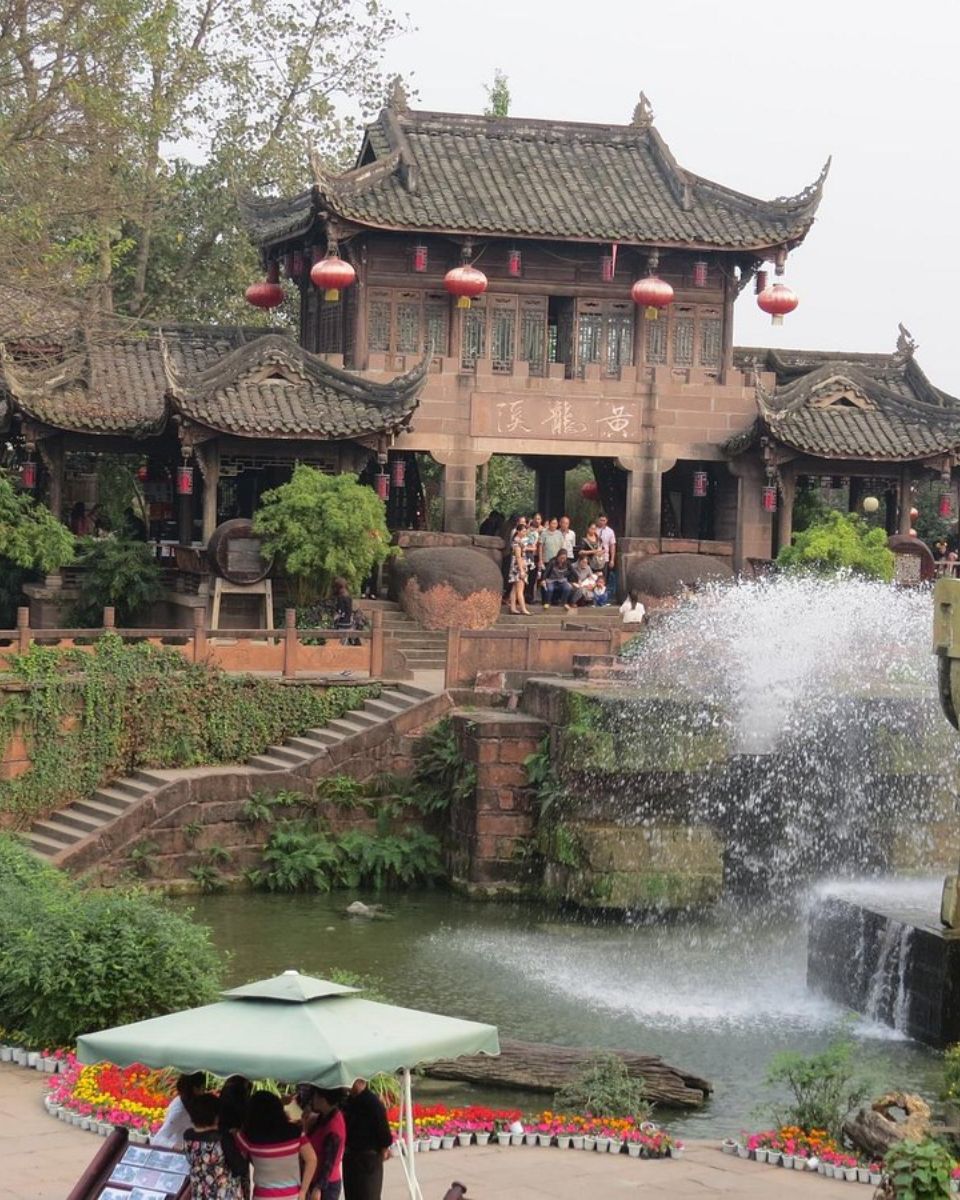
This popular tourist destination allows you to step back in time and experience life as it once was, with its perfectly preserved architecture dating back to the 14th century Ming Dynasty.
Among the many highlights of your visit, you’ll have the chance to explore exquisite temples from the Ming and Qing dynasties, observe watermills in action, and marvel at an impressive covered bridge.
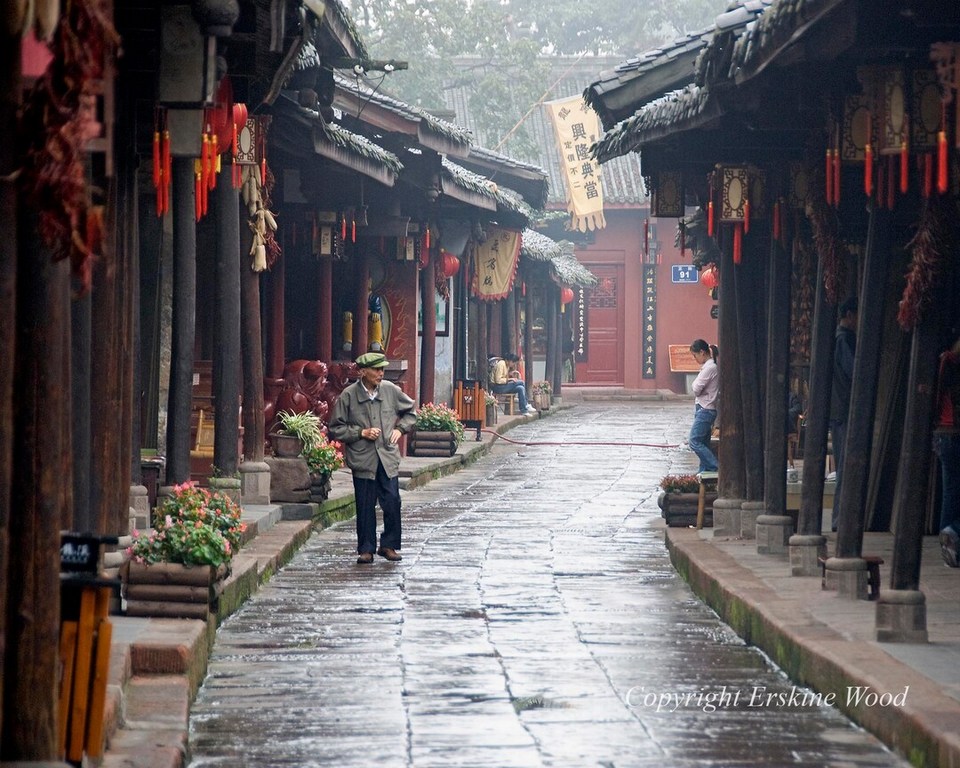
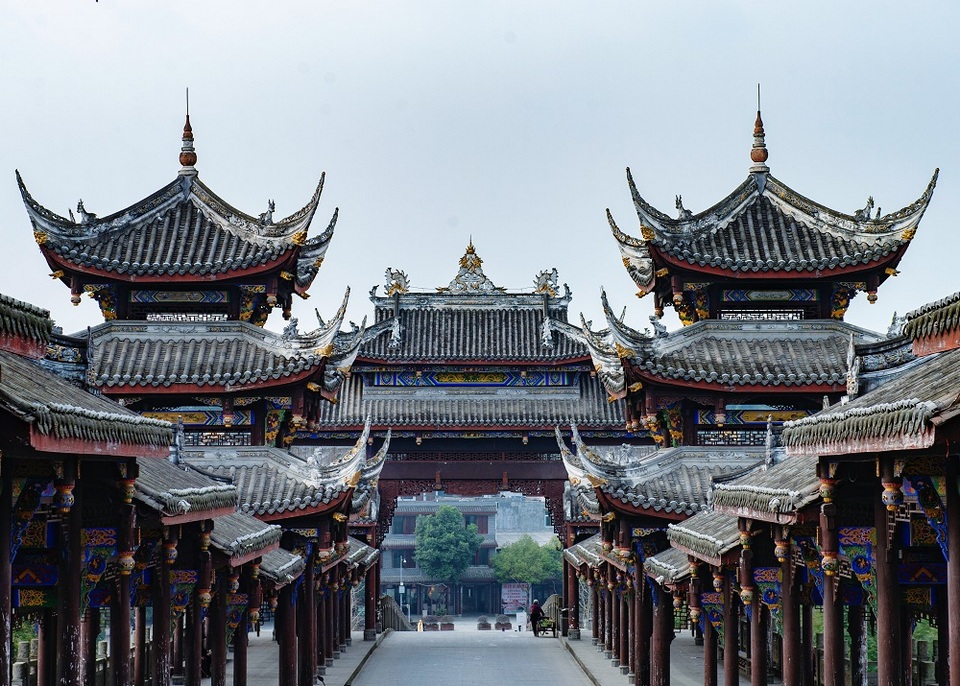
On your journey, you will come across countless traditional shops, craft workshops, restaurants and teahouses. Additionally, you can enjoy a scenic pedestrian-only riverside walk, adding to the town’s casual atmosphere.
Experience Chengdu nightlife
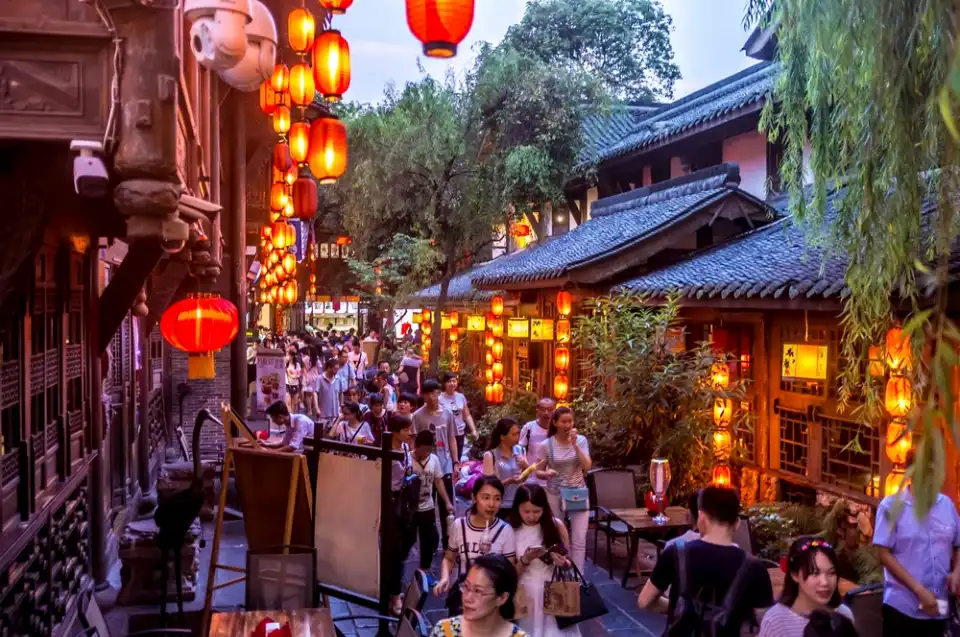
When the sun goes down, Chengdu comes alive with a vibrant nightlife scene. From trendy bars to traditional teahouses, there’s always something for nightlife enthusiasts.
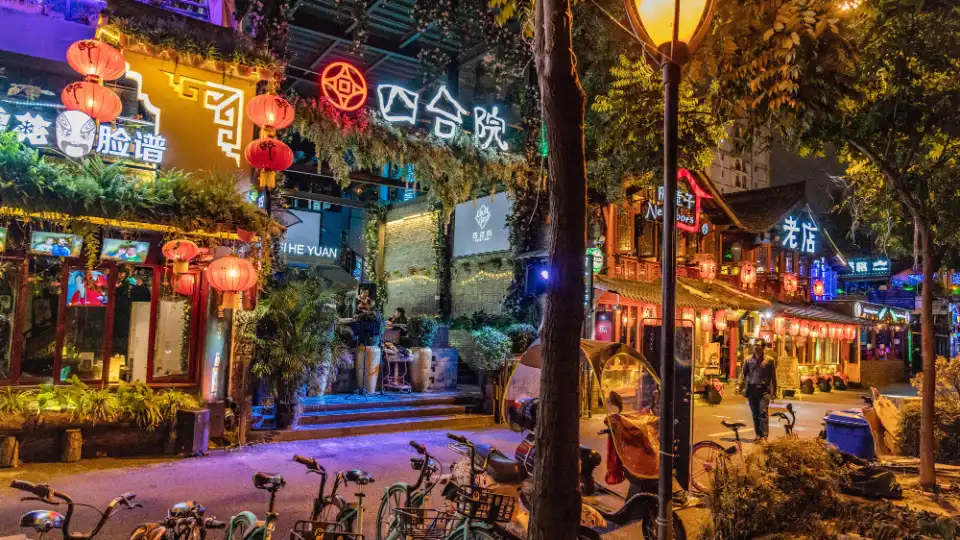
Take a day trip to Dujiangyan irrigation system
Adventure outside Chengdu for a day trip to the Dujiangyan Irrigation System, an ancient engineering feat that transformed the region’s agriculture.
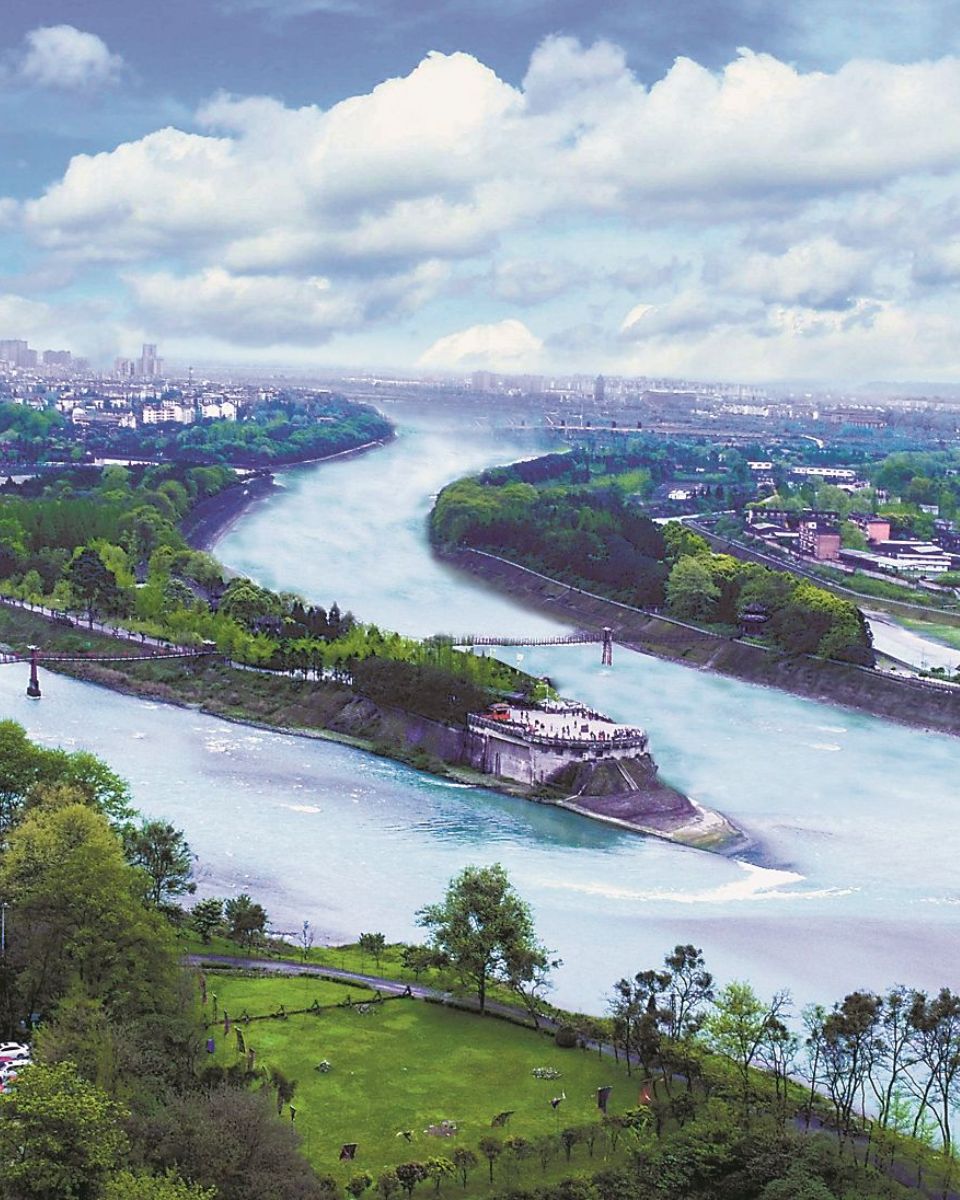
Built in 250 BC, the fascinating Dujiangyan Irrigation System is located near the town of Guanxian on the upper reaches of the Minjiang River.
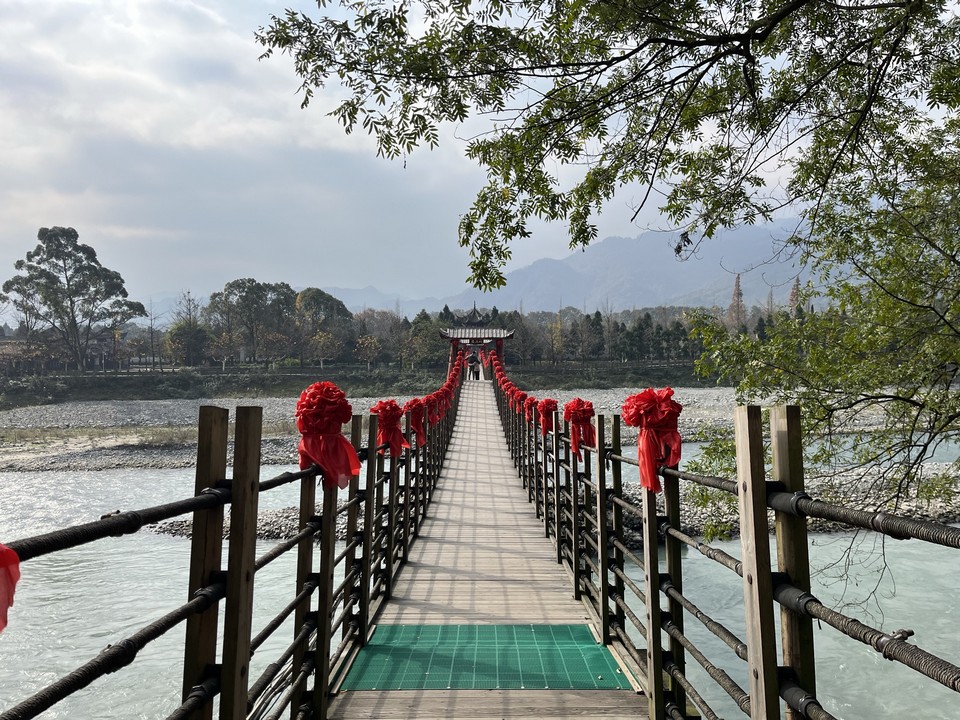
Wangjianglou Park: Home of poetess Xue Tao
Wangjianglou Park is famous for being the residence of female poet Xue Tao from 769-834. The park’s highlight is the impressive 30-meter-high River Viewing Pavillion, built in 1889.
It is home to a famous ancient fountain dating back to the Tang Dynasty (618-907), where Xue Tao is said to have drawn water to create the unique red paper she wrote on. The fountain still bears her name to this day.
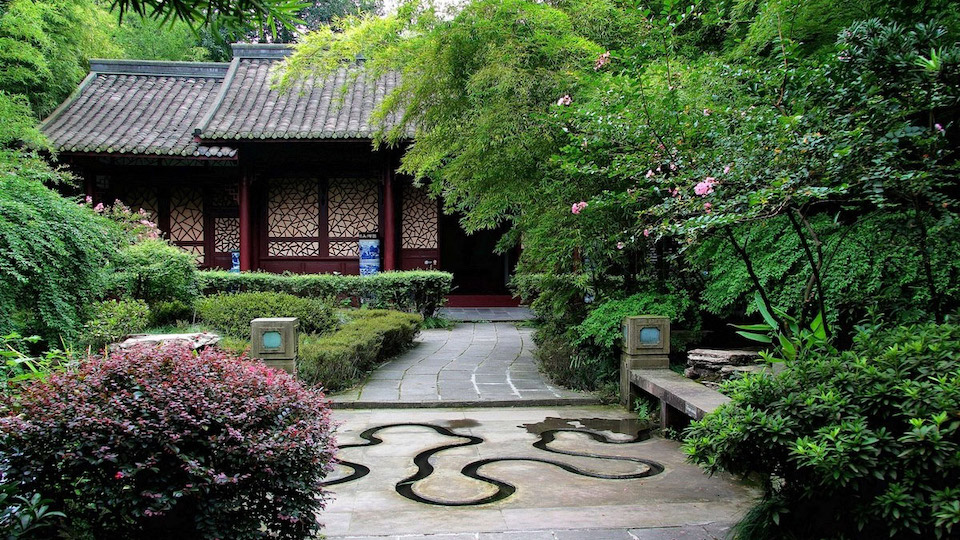
The park also has other structures dedicated to her memory, including the 30-meter-tall tower of Poetic Recitation (Yinshi Lou), the Paper Washing Pavilion (Wanjian Ting), and the Brocade Washing Tower (Zhou Lou).
A beautiful bamboo forest, consisting of 140 different species of bamboo – a plant beloved by Xue Tao – adds to the charm of this location.
Location: 30 Wangjiang Road, Chengdu City, Sichuan.
Yongling Museum
Yongling Museum, also known as the Tomb of Wang Jian or Yongling Mausoleum, is a historical site containing the remarkably preserved royal mausoleum of Wang Jian, who ruled the Former Shu dynasty until his death in 918.
Located in the northwest region of Chengdu and currently serving as a museum, this elegant 15-meter-tall structure has 14 impressive archways and has been open to the public since 1942.
The museum is organized into three rooms, with the central room containing the exquisitely decorated coffin of the emperor himself.
Notable highlights of a visit to the Yongling Museum include the exquisitely crafted stone statue of Wang Jian and the intricate, detailed stone-carved murals depicting 24 musicians – a unique and precious since the Tang Dynasty.
Address: 10 Yongling Road, Jinniu District, Chengdu, Sichuan, China.
Divine Light Temple (Baoguang Temple)
Address: 210 Baoguang Ave Middle District, Xindu District, Chengdu, Sichuan, China.
Nestled in the ancient town of Xindu, just 18 kilometers northeast of Chengdu, the Divine Light Temple or Baoguang Temple, is a charming destination well worth a visit.
Originating from the Han Dynasty, which lasted from 24 to 220, this vast complex includes more than 20 meticulously preserved structures, all of which were built in 1670.
Among these architectural wonders, you will discover a magnificent pagoda, 5 temples and 16 picturesque courtyards, spread over about 20 acres of land.
One of the most astonishing features is the 13-story Sarira Pagoda, a rare gem that has remained intact since the Tang Dynasty, which flourished from 618 to 907.
The temple also boasts a series of archaeological artifacts, including a stone stele decorated with 1,000 reliefs of the Buddha, dating from 540. In addition, the temple grounds are adorned with The 500 larger-than-life terracotta statues date back to the Qing Dynasty, which lasted from 1644 to 1911.
Where to stay in Chengdu?
Below we recommend more best budget, mid-range and upscale hotels with good ratings and reviews you can refer to.
- Grand Hyatt Chengdu (Agoda, Booking)
- Niccolo Chengdu (Agoda, Booking)
- Shangri-La Chengdu (Agoda, Booking)
- The Temple House (Agoda, Booking)
- Crowne Plaza Chengdu City Center, an IHG Hotel (Agoda, Booking)
- Ascott Raffles City Chengdu (Agoda, Booking)
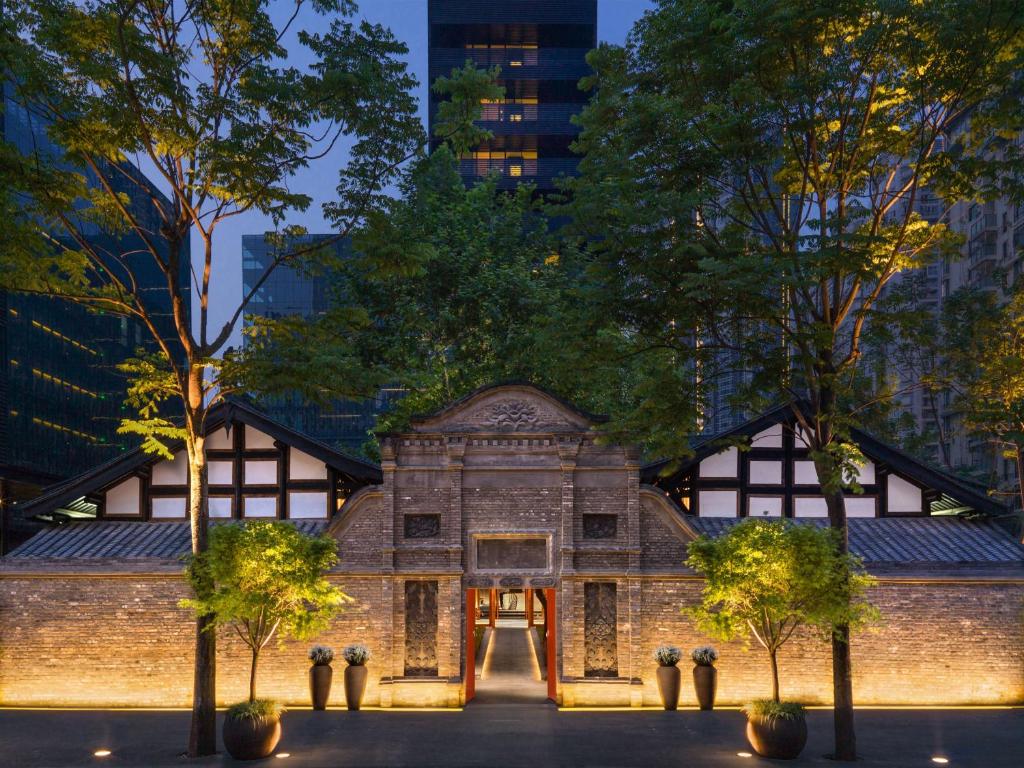
Check out more top and best hotels in Chengdu on Agoda.com or Booking.com
Some best day tours, trips, activities and transfer services, tickets in, from and to Chengdu you can refer to
- Dujiangyan Panda Base and Mount Qingcheng Tour from Chengdu
- Chengdu Gourmet Night Group Tour
- Chasing Dawa for 3 days and 2 nights (free Tibetan travel photography + Gedi Ram +
- Dawa Gengza + Shenmu Lei)
- Chengdu Radio and TV Tower Admission Ticket
- Essence of Chengdu City Private Day Tour
- Chengdu Downtown Private Car Charter
- Chengdu Panda Base Private Day Tour and Sichuan Cooking Class
- Dujiangyan Admission Ticket Chengdu
- Chengdu Food Day Tour with Chengdu Giant Panda Base Ticket
- Dufu’s Thatched Cottage Ticket Chengdu
- Classic Chengdu One Day City Tour
- Giant Buddha and Tea Terrace Town Day Tour from Chengdu
- Chengdu Private Day Tour (With Visit to Chengdu Panda Base and Hotpot Experience)
Read more top places to visit in Chengdu here. Read more China guide here.

